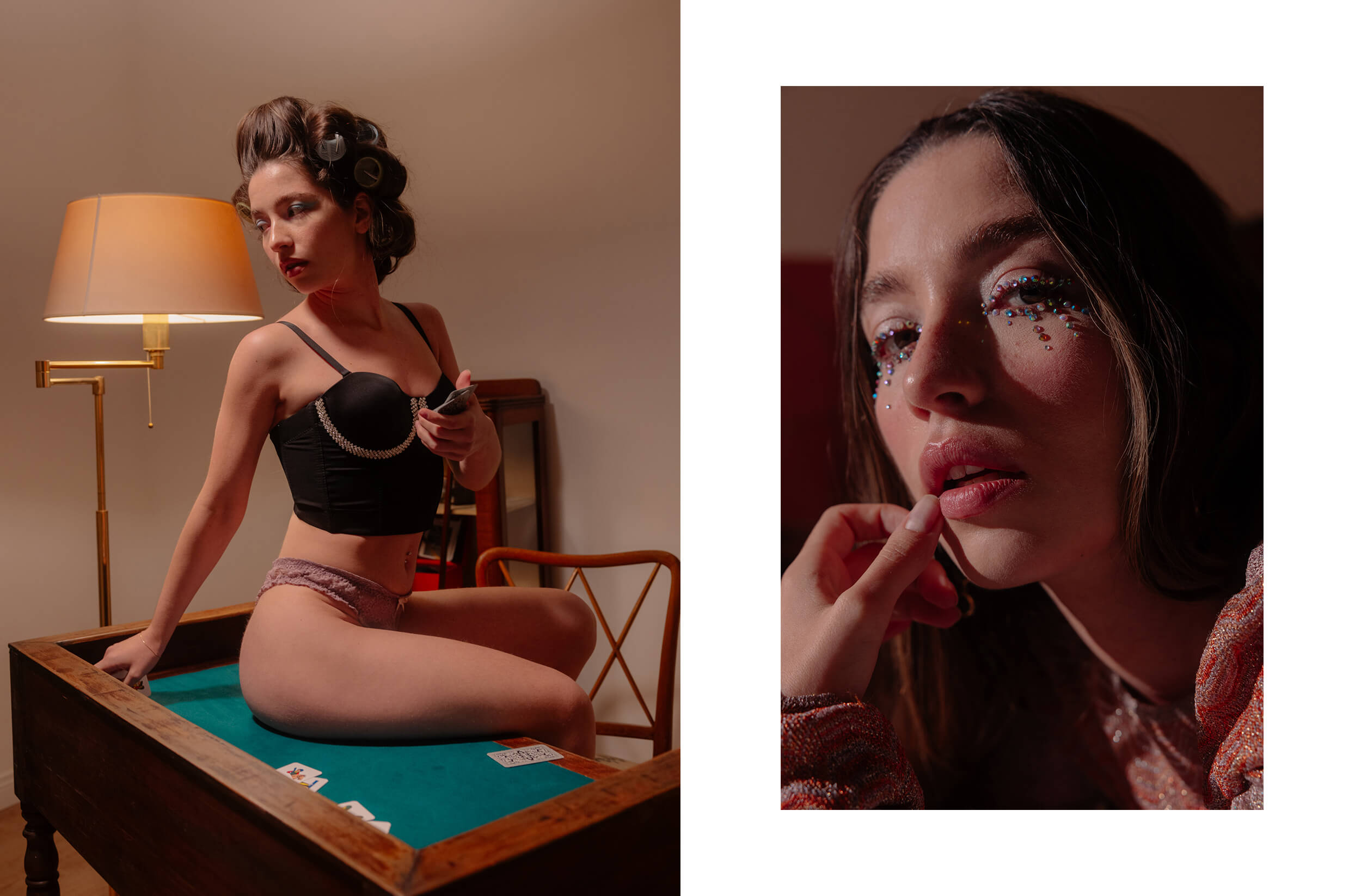Beatrice Puccilli, a rising star in Italian cinema, plays Vera in the new Netflix series “Adorazione,” based on the novel by Alice Urciuolo. With sensitivity and intensity, she brings to life a complex character, fragile yet resilient, at the center of a story that explores loneliness, identity, and toxic relationships.
In this interview, Beatrice shares insights into the emotional work behind the scenes, her connection with the character, and the challenges she faced on set. She also reflects on personal experiences and the series’ universal message: the courage to face one’s fears and live authentically.
What is your first cinema memory?
I actually have two!
As a child, I had an annual tradition with my father where we’d go watch the Harry Potter films. They were probably the first films I ever saw in a theater. I associate those moments with very happy memories because it was an incredible feeling to go on an adventure with my dad and characters who grew up with me over time.
On the other hand, I rarely went to the cinema with my mother, but one very beautiful memory I have is when we watched an animated film that came out in 2003 called “L’apetta Giulia e la signora vita” (Giulia the Little Bee and Lady Life). Even though the graphics might seem outdated today, the film deals with beautiful themes, talking about life and death through the eyes of children. That movie really shook me, especially because it’s about a bee and her mother, and I watched it with my own mom. It left a profound mark on me.
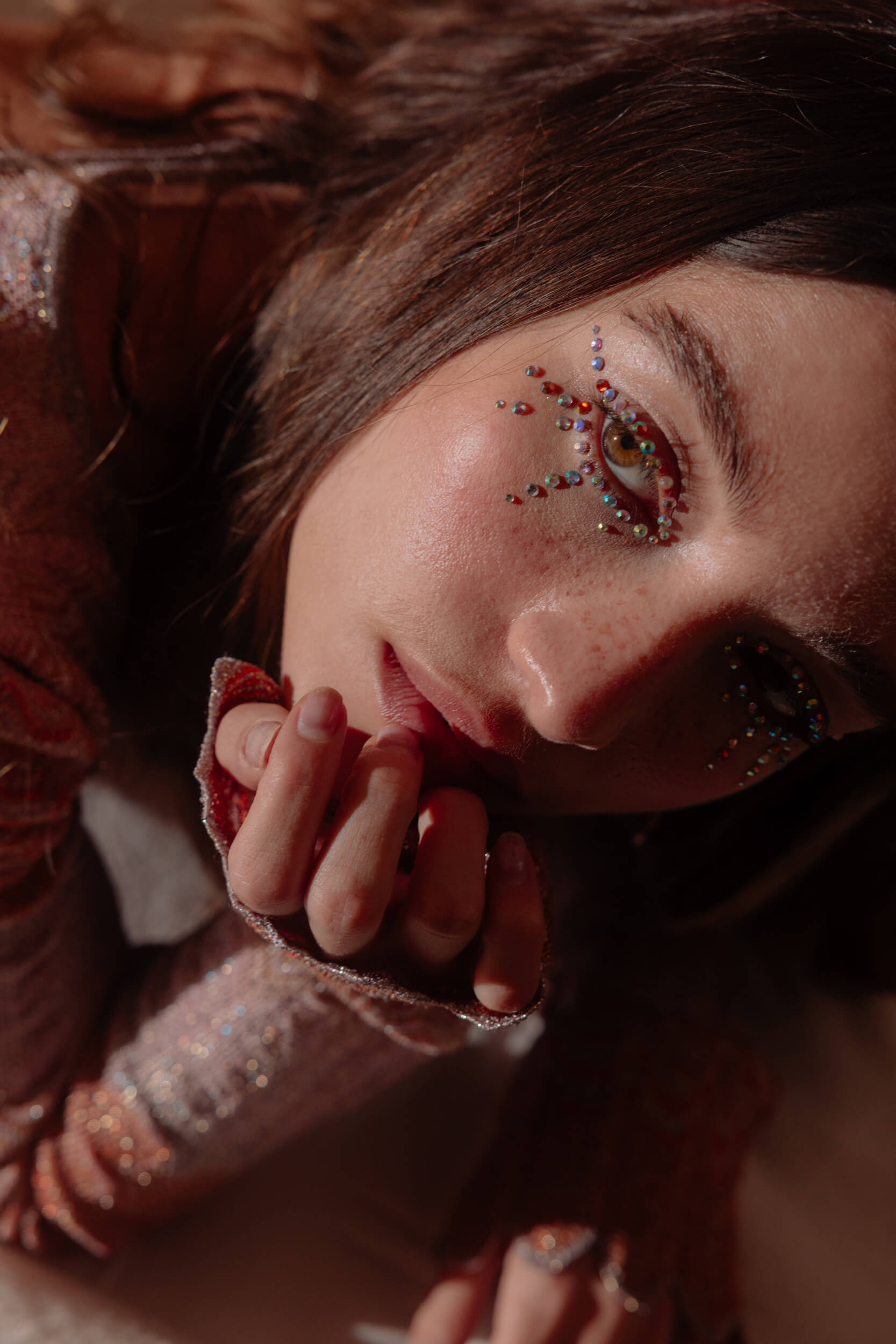
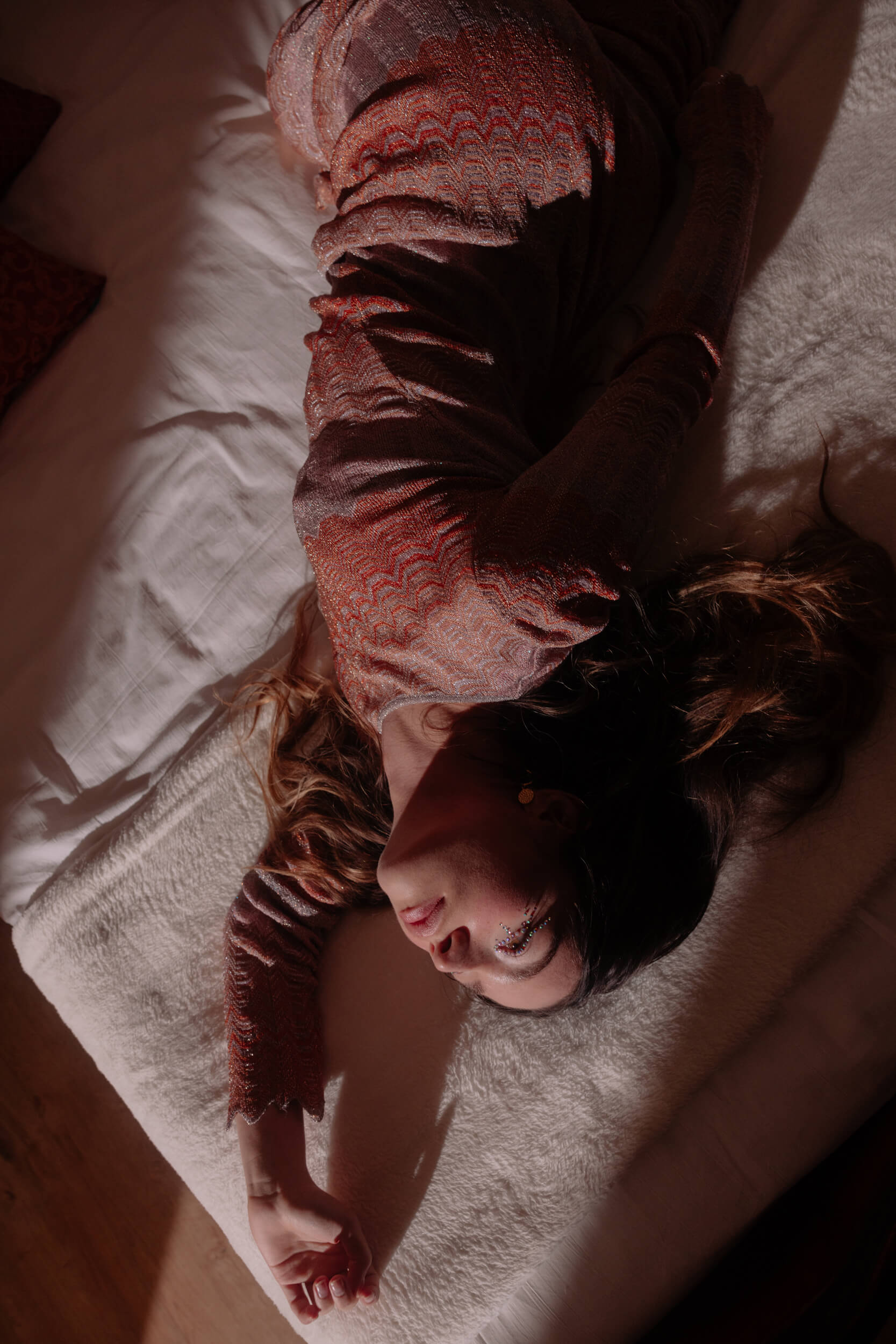
What struck you about the story of “Adorazione” and your character specifically when you read the script?
When I read the script, the first thing that caught my eye was how, amidst the ensemble nature of the series, the female characters were so well-written and deeply portrayed. I immediately noticed the unconventional way they were depicted—three-dimensional and nuanced, which is not something we’re used to since male characters often drive narratives. It was wonderful to see a series where all choices, actions, and decisions were driven by women who, in my opinion, don’t conform to stereotypes. They might align with archetypes, but they remain very multifaceted and layered.
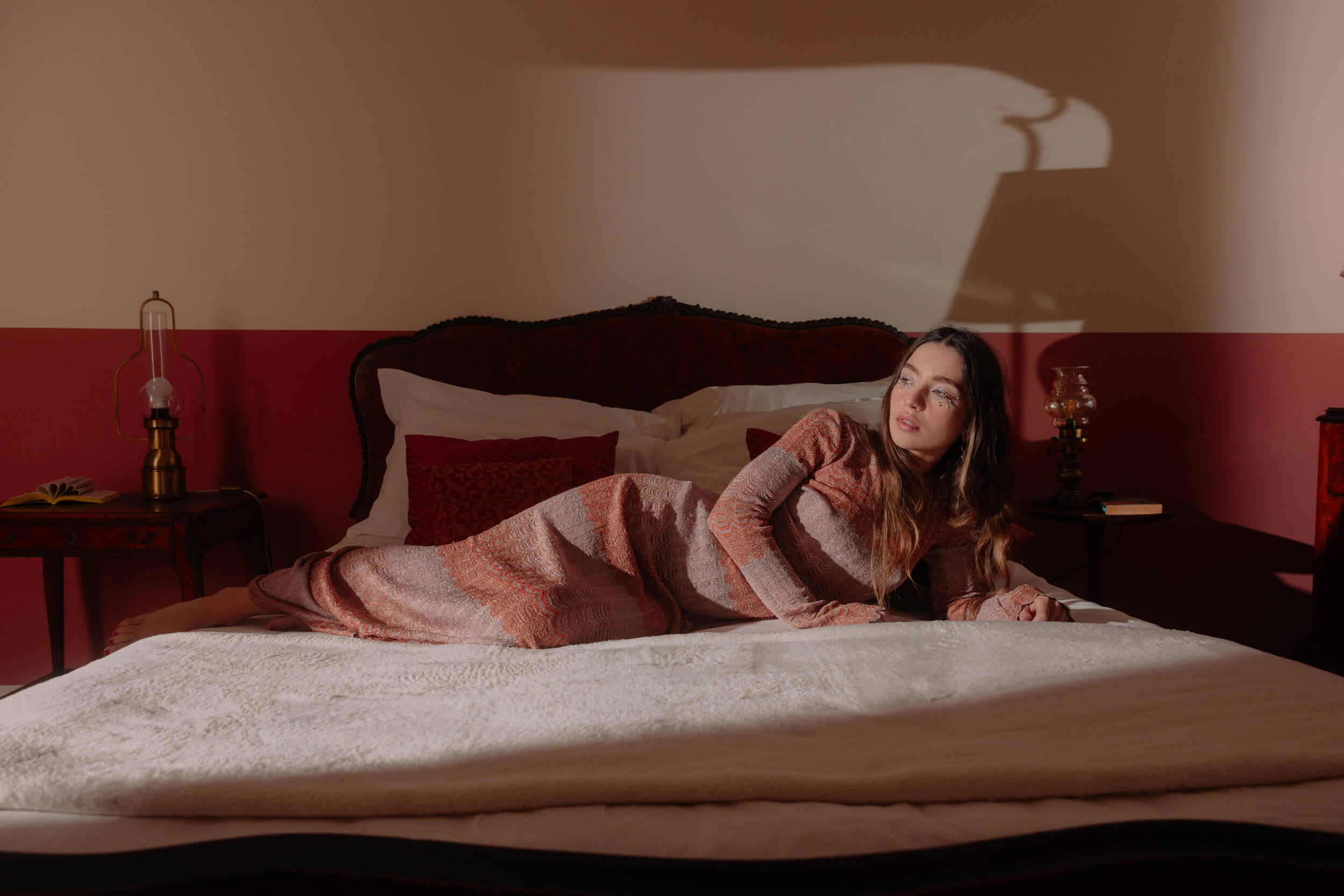
“When I read the script, the first thing that caught my eye was how, amidst the ensemble nature of the series, the female characters were so well-written and deeply portrayed.”
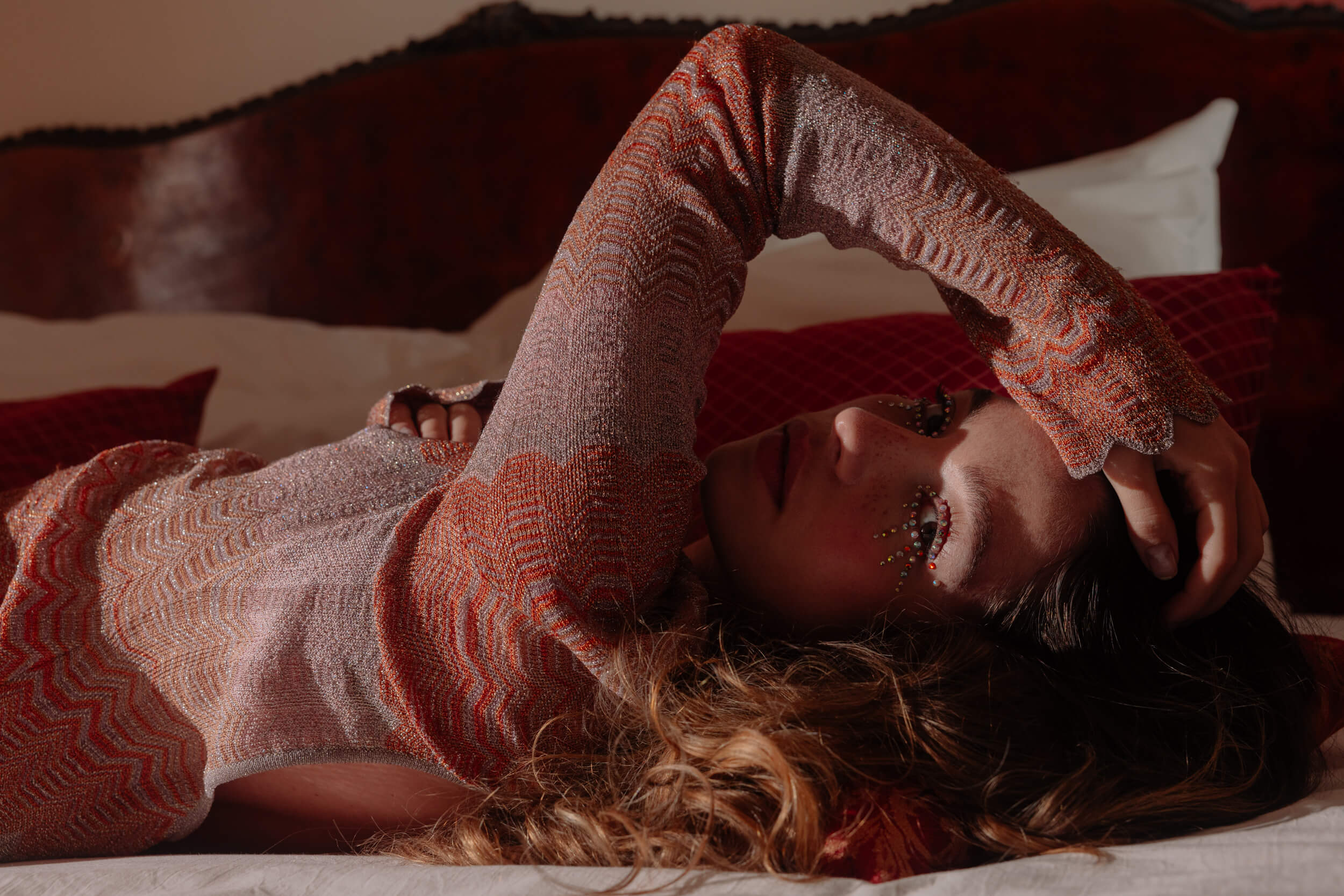
The series is based on Alice Urciuolo’s novel of the same name. Did you know about it before joining the project? How did it help you prepare for your role?
I read the script first; the novel came later, after I was cast. Once I got my hands on it, I finished reading it in the first few days on set. The novel is structured differently from the series, almost following a separate timeline. It begins a year after Elena’s murder, while the series unfolds in medias res. Reading the book after already working on the script was enriching because it added new elements and moments to my character’s life, which I had already grown very attached to.
It was exciting to continue getting to know Vera, digging deeper, and adding details, nuances, and memories to her.
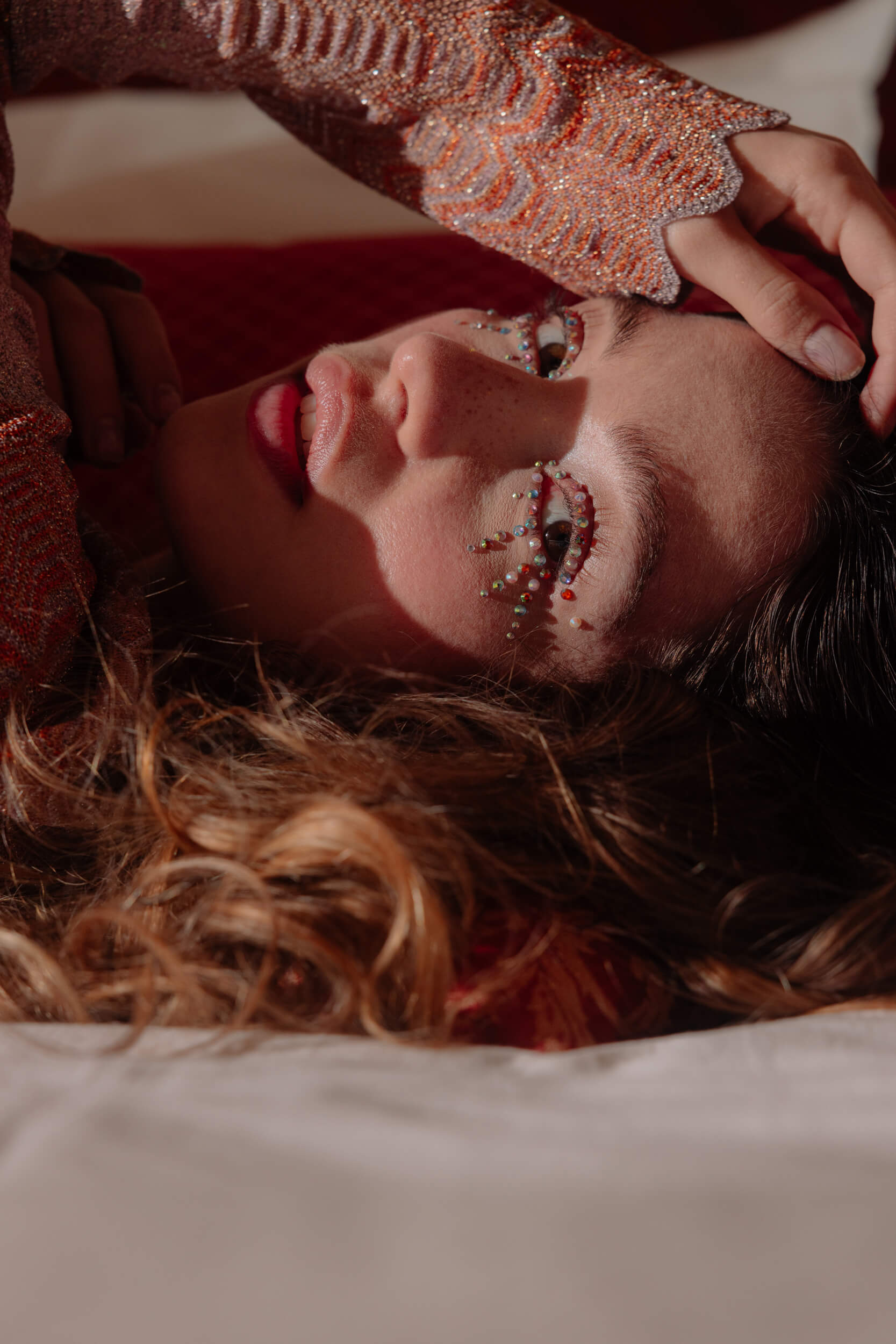
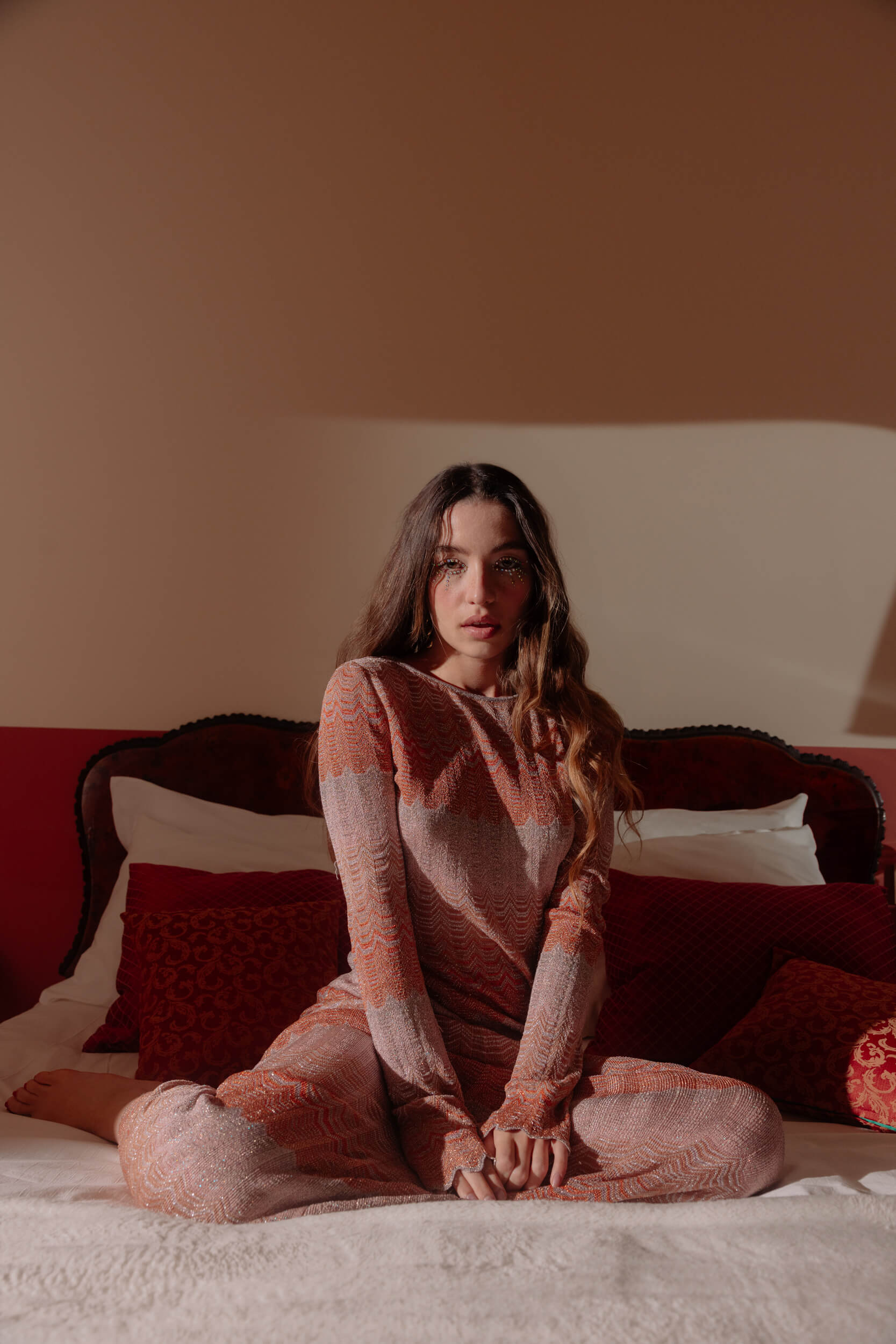
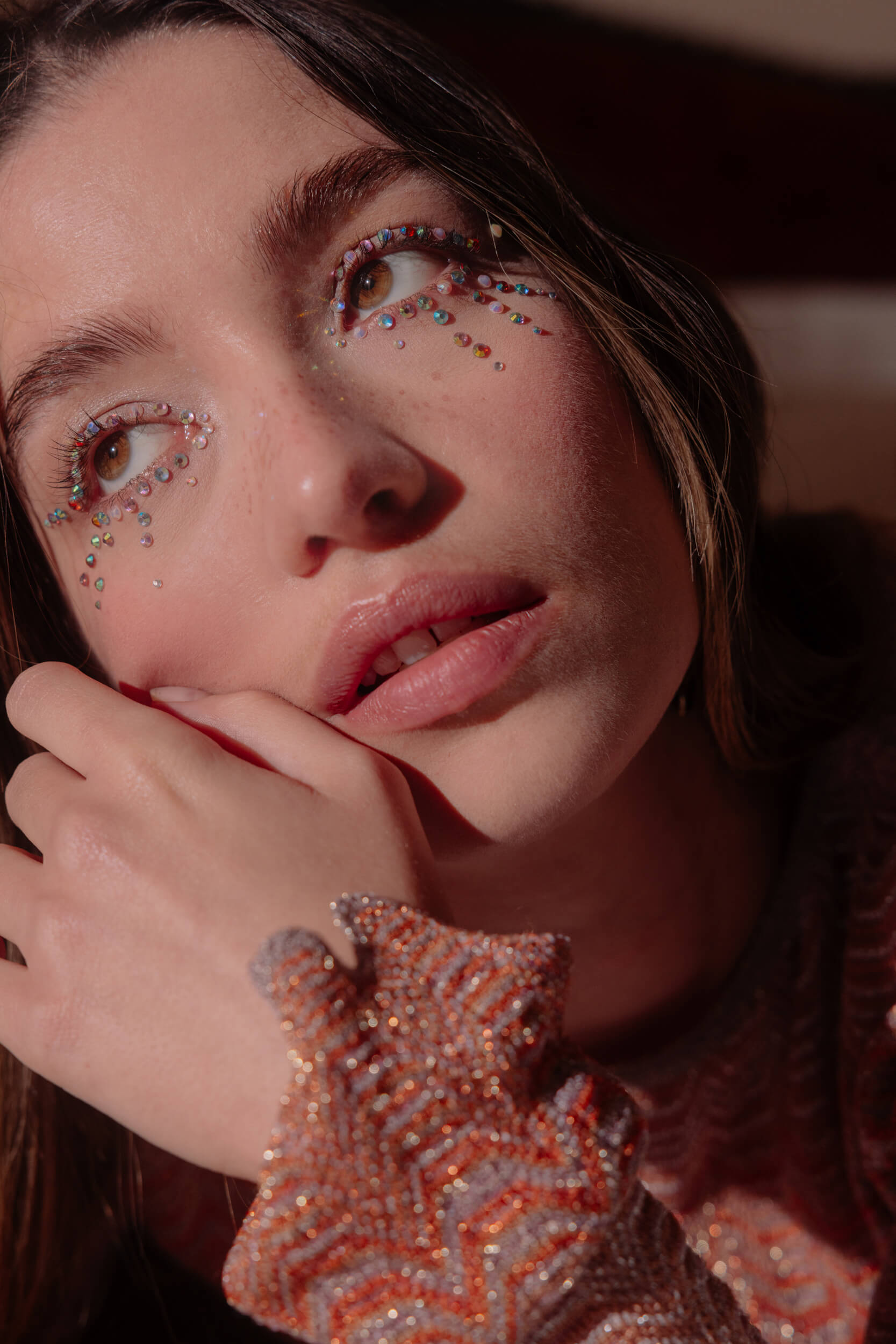
Vera seems to be full of contradictions: fragile yet resilient, distant yet craving affection. How did you work on these contrasts to make them believable on screen?
I simply tried to find humanity, truth, and sincerity. I asked myself: how would 15-year-old Beatrice have reacted in this situation? It was an imaginative exercise based on my own experiences and what I know about life. I tried to give generously to Vera, drawing from my own knowledge.
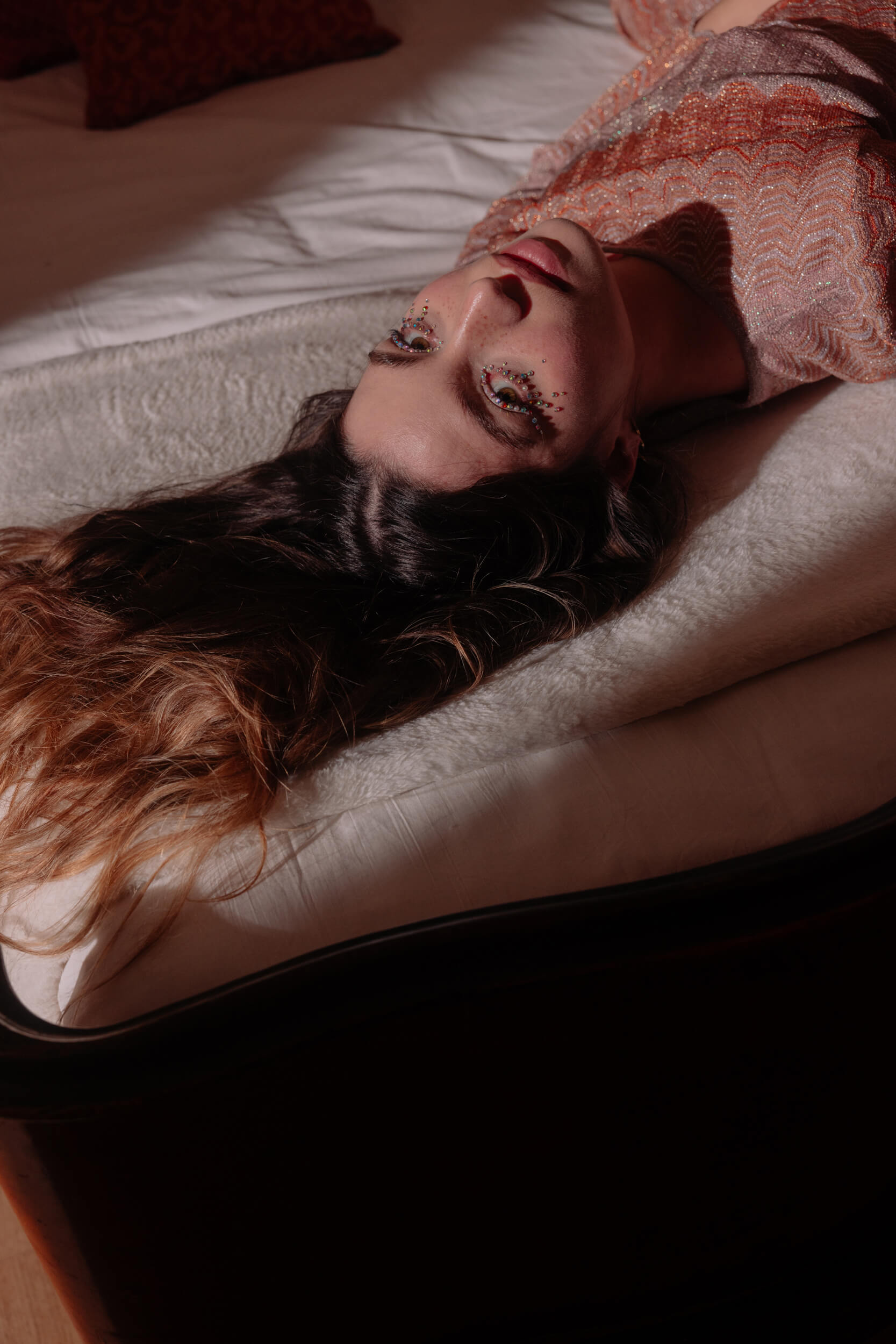
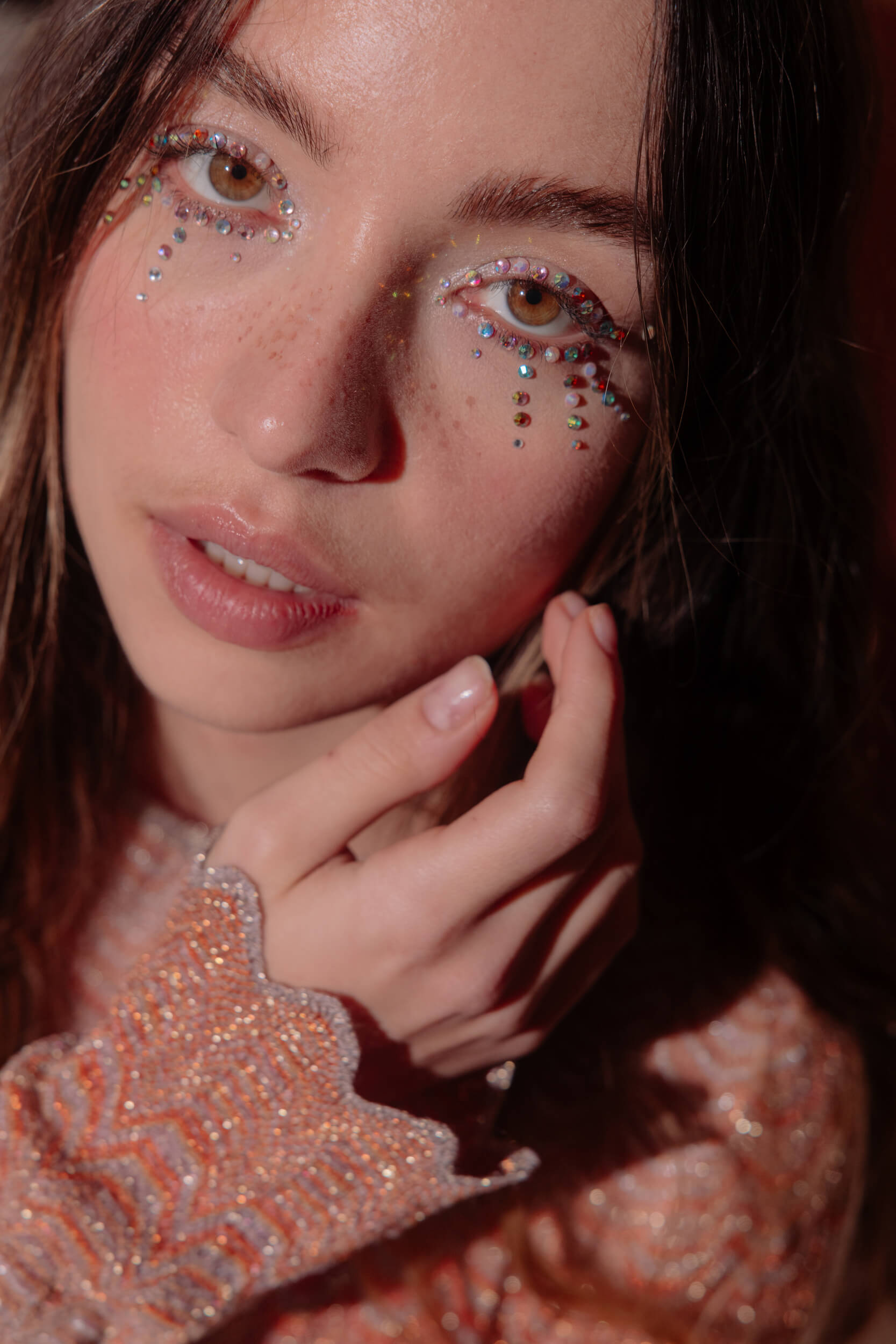
How does Vera change over the course of the series? What impact do you think Elena’s disappearance has on her personal growth?
I believe Vera was affected indirectly. This doesn’t mean she’s selfish; she’s actually driven by love, even though she might seem brusque or impulsive. Deep down, she’s very kind and generous. However, in this specific case, the incidents that transform her are more reflective of the event itself. Vera finds herself swept up in a whirlwind of events, people, and situations. At first, she struggled to stay afloat, but eventually, she found the strength within herself to regain her direction.
I’ve experienced a similar situation in my own life, so I tried to recreate that confusion and the will to gather strength and piece oneself back together.
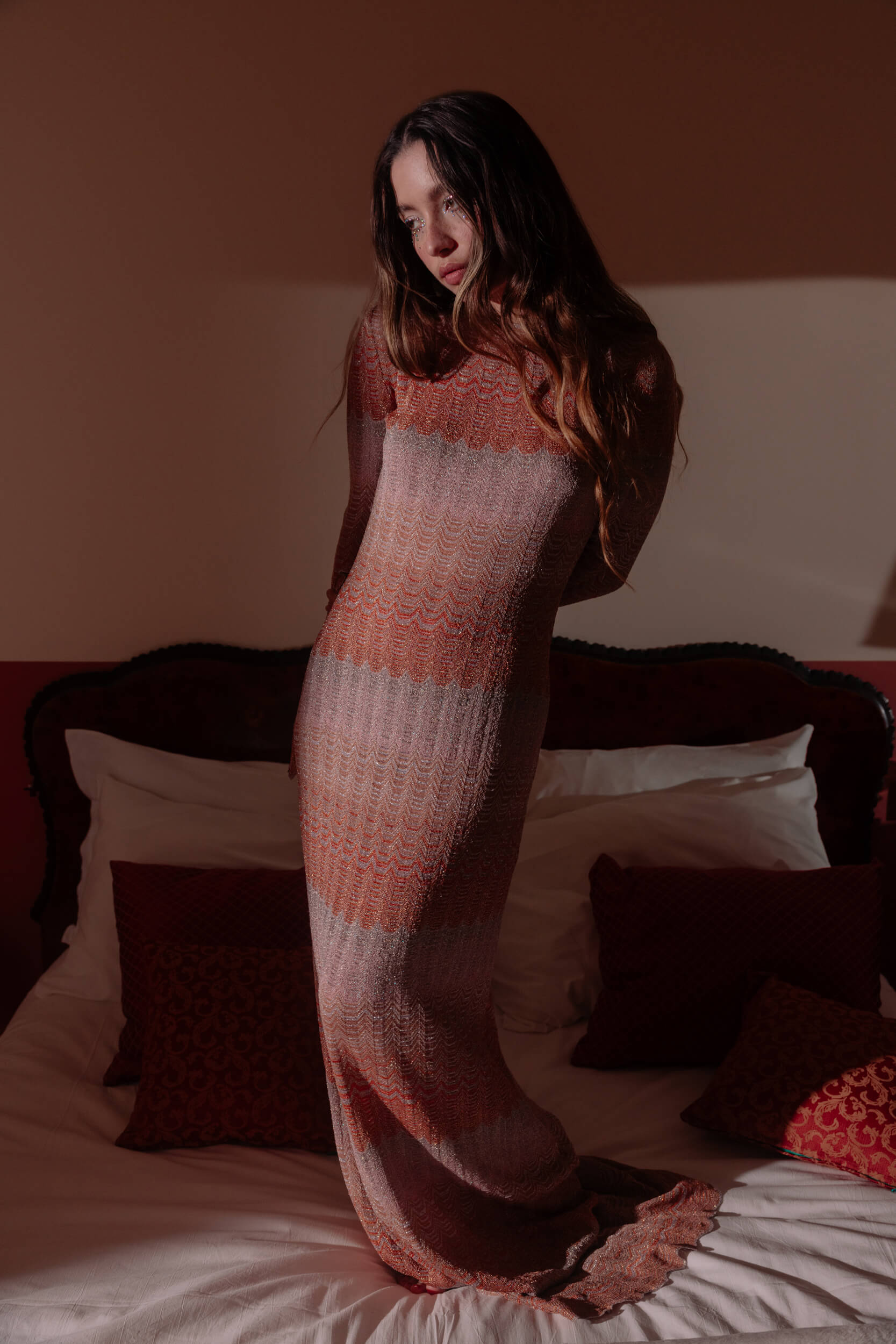
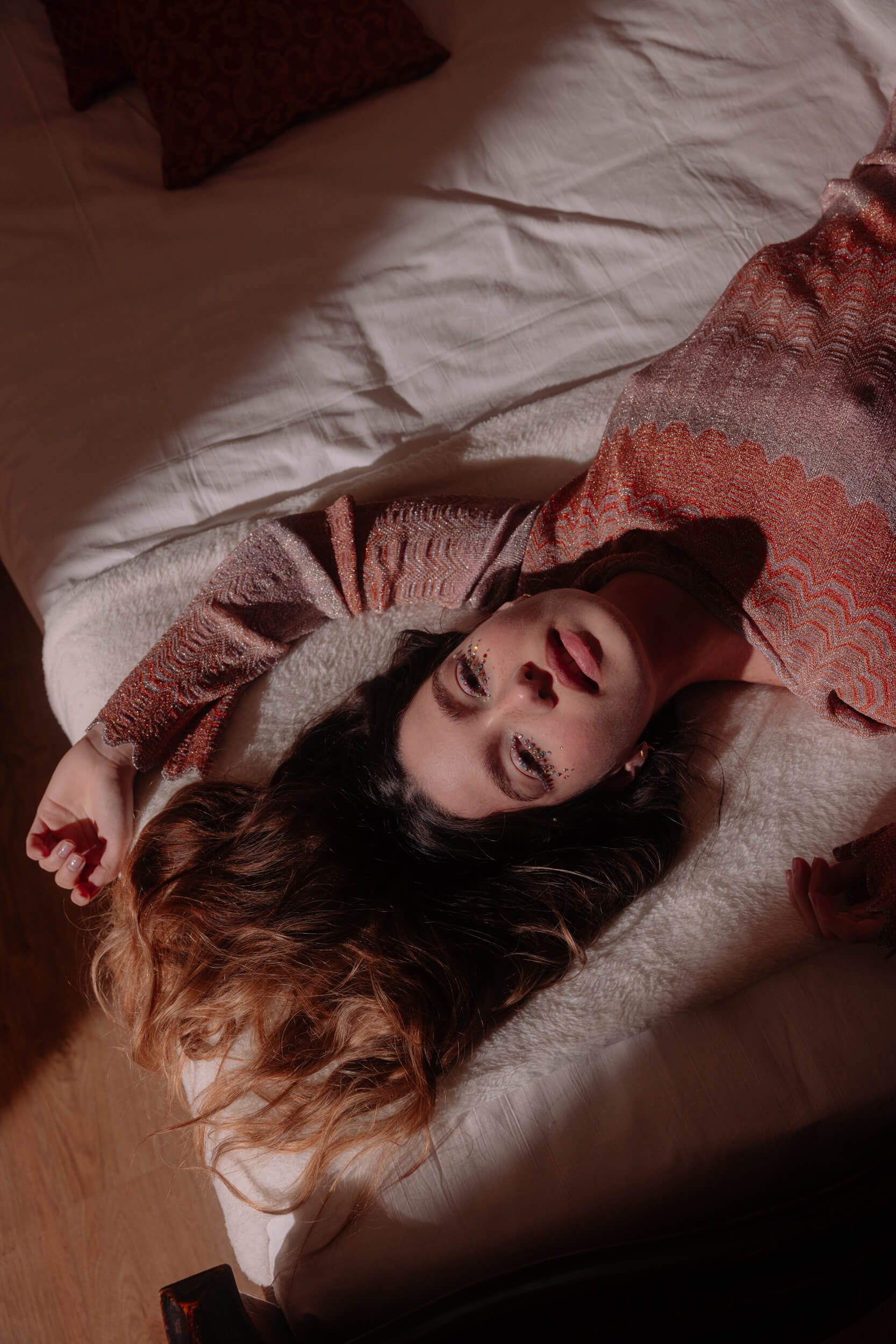
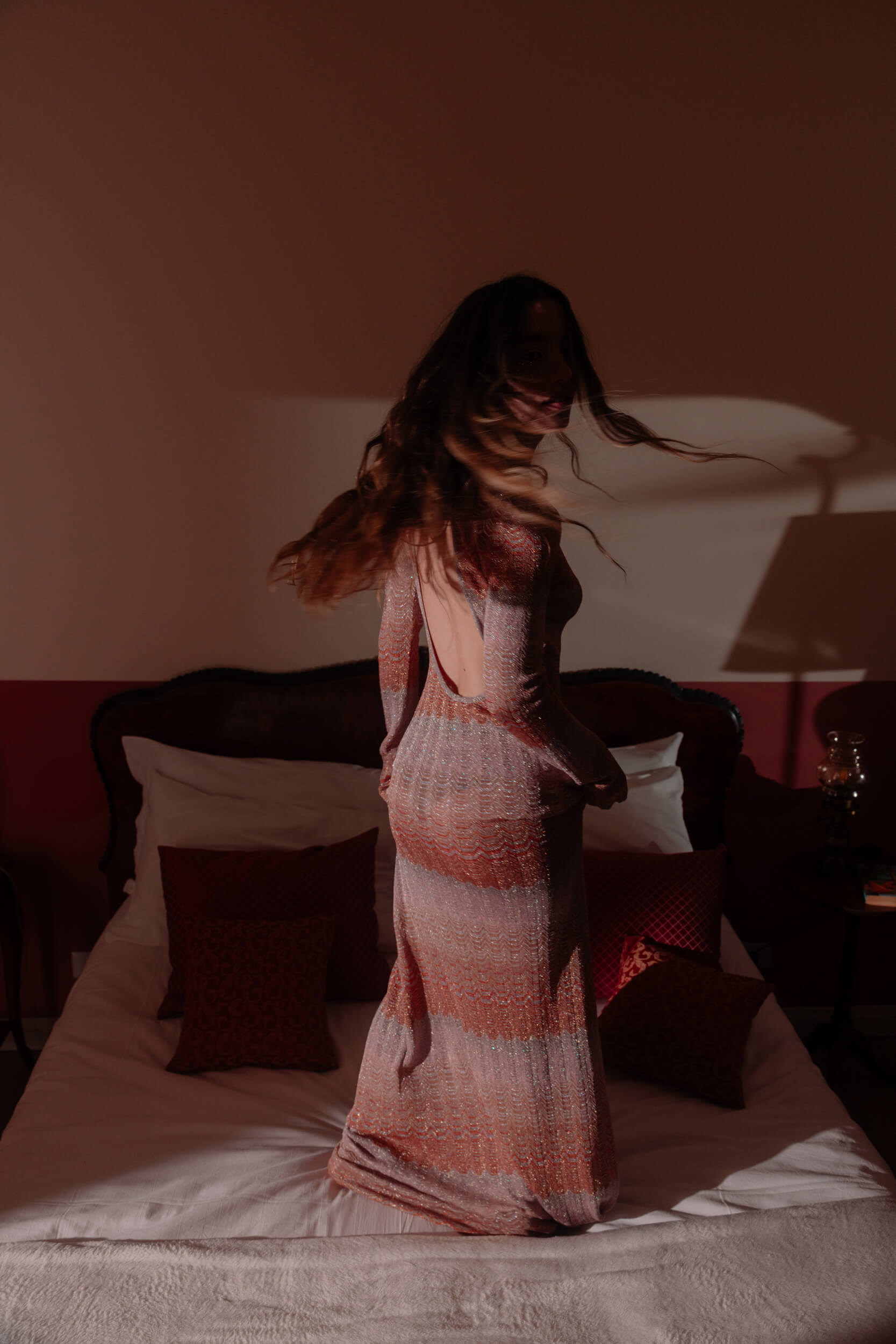
“…I tried to recreate that confusion and the will to gather strength and piece oneself back together.”
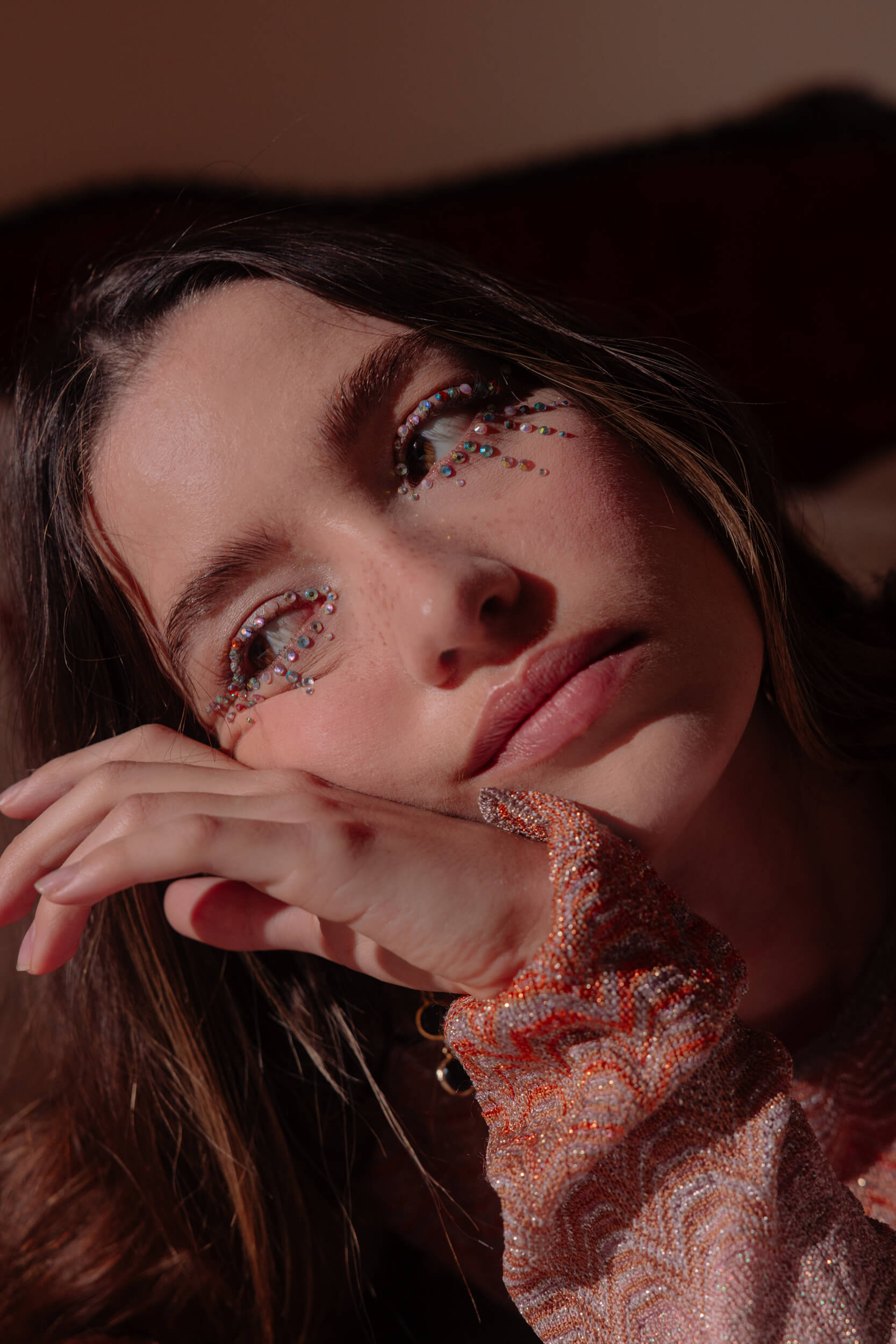
The dysfunctionality of her family likely contributes to this “chaos.”
Absolutely. Especially compared to other families. For instance, Vera’s cousin Vanessa has a more ordinary, present family that, despite its own issues, shows a different kind of support. Vera, on the other hand, is used to handling her own problems, which requires even more effort than adolescence already demands.
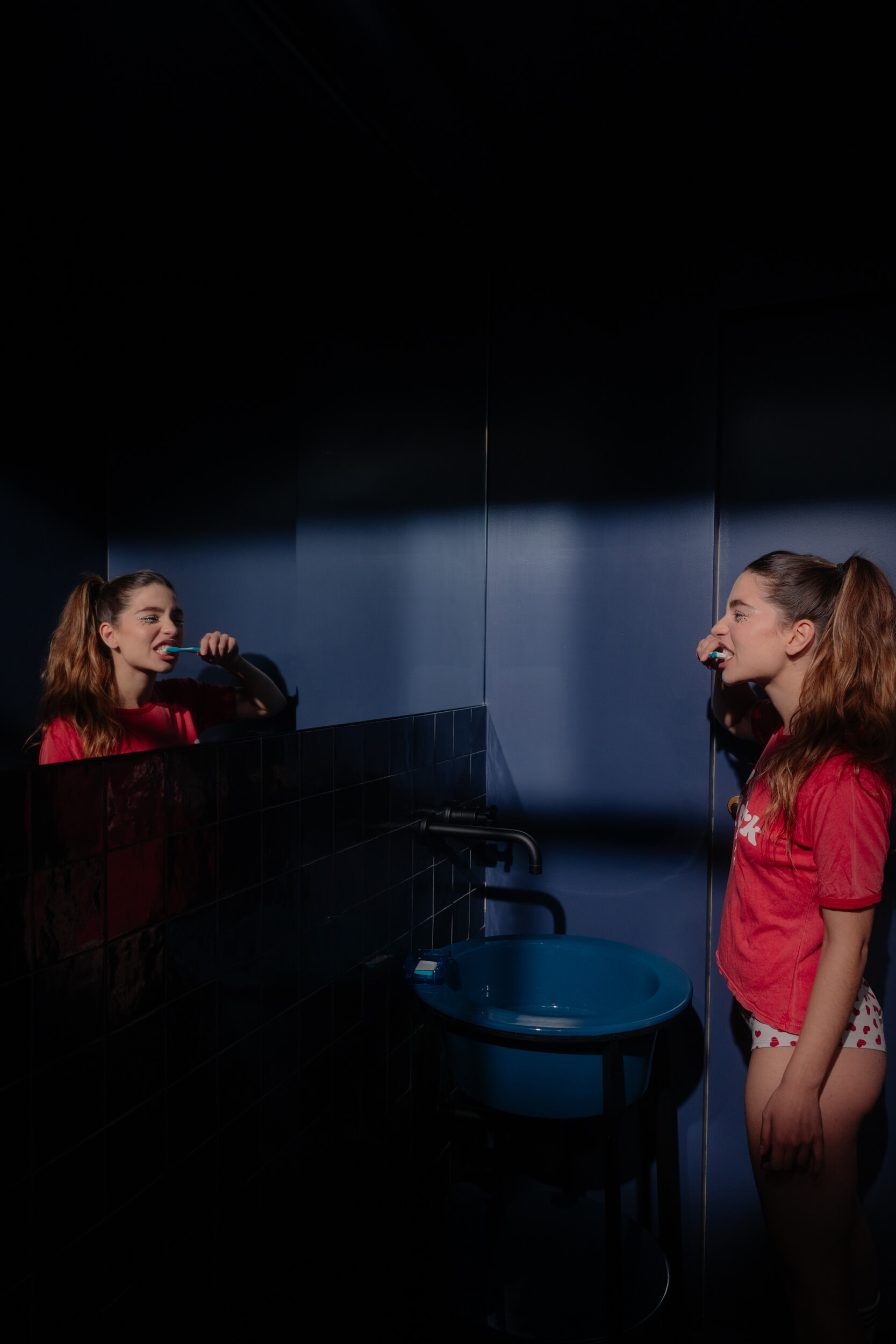
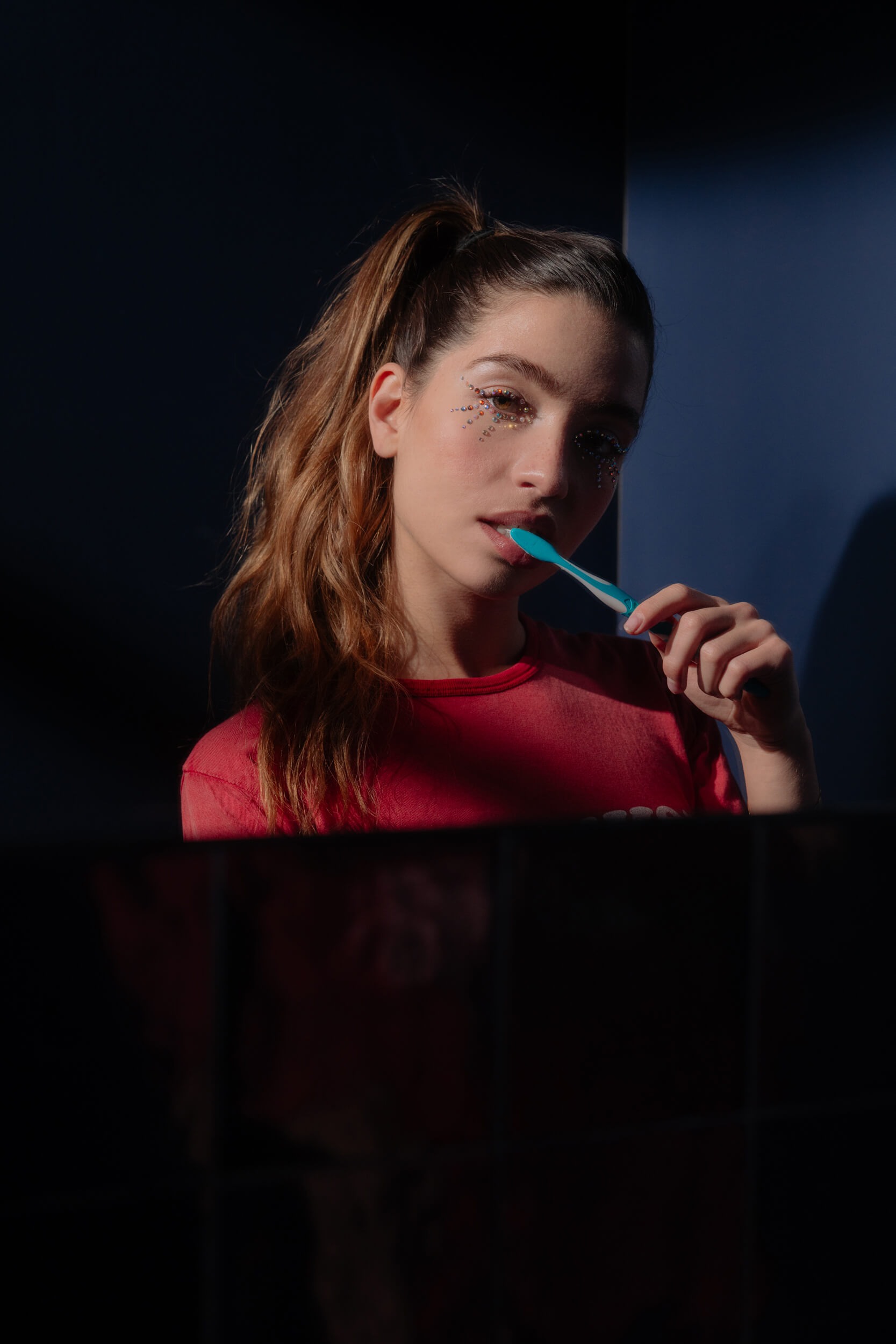
What was the most intense or challenging scene to shoot due to the toxic dynamics between the characters?
It’s hard to pinpoint just one because there are different types of challenges. There’s the embarrassment of intimate scenes, technical challenges like a scene where I use drugs, and then there’s emotional difficulty.
Perhaps the hardest part was my dialogues with my father. That kind of relationship was complex to explore. I believe people change depending on who they’re speaking with. When I talk to someone, I become a different version of myself while maintaining my core integrity. Exploring that dynamic with my on-screen father required a whole new path of research.
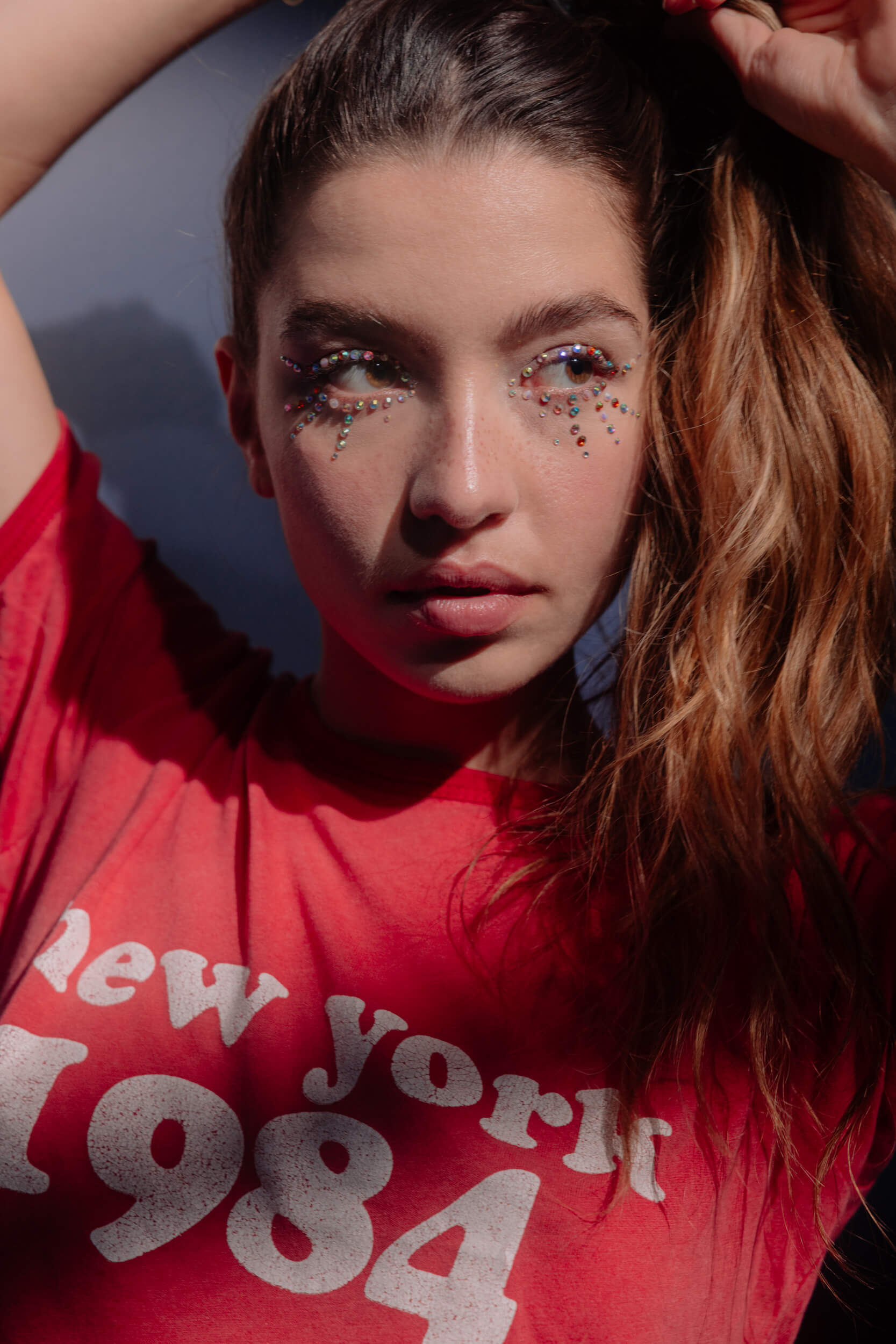
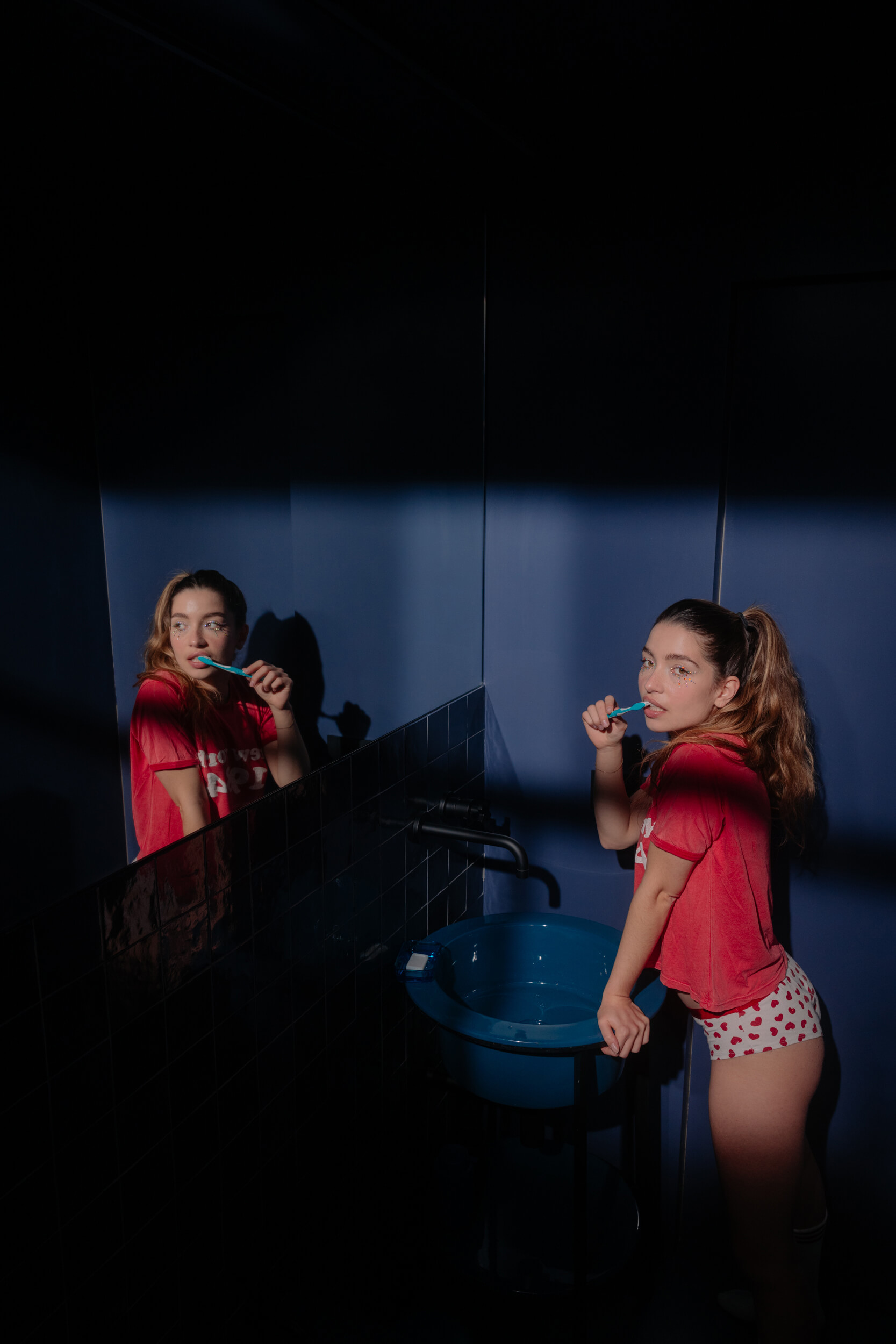
“I believe people change depending on who they’re speaking with. When I talk to someone, I become a different version of myself while maintaining my core integrity”
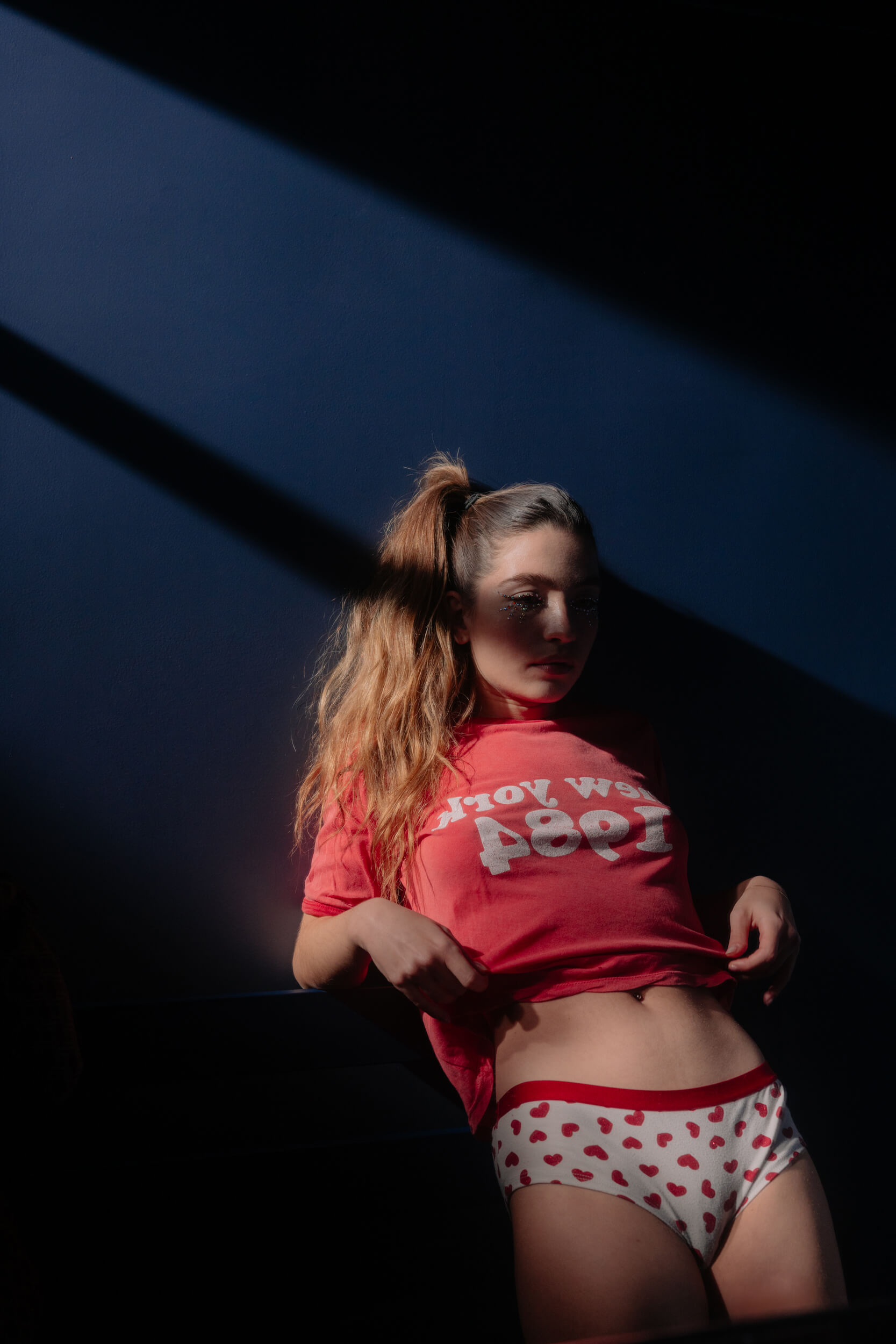
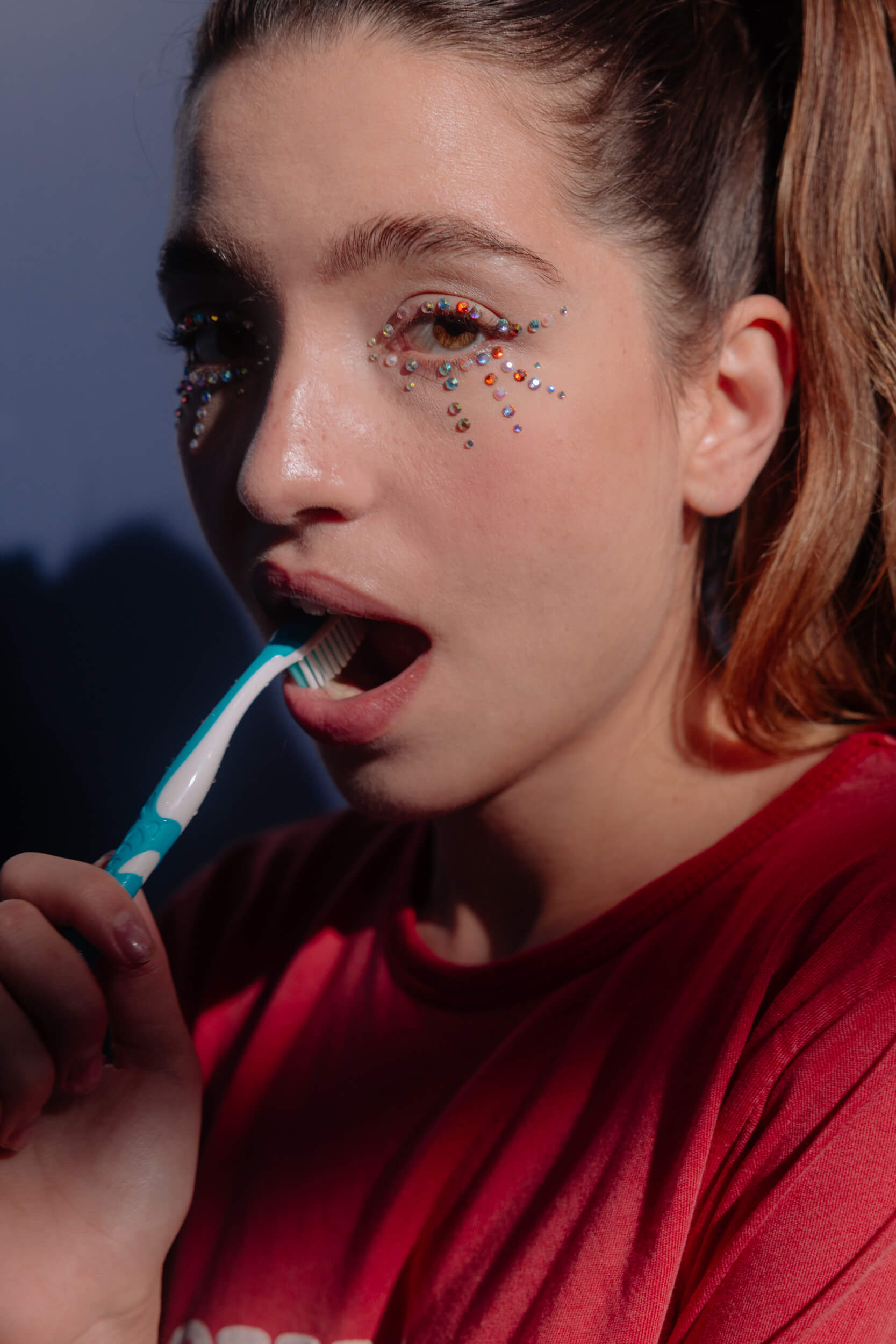
“Adorazione” deals with loneliness, identity, and toxic relationships. Did you see yourself reflected in Vera’s or the group’s feelings in any way?
I did, a lot. Of course, the triggers were completely different from what happens to Vera or in the series. But playing this character was almost cathartic for me, a way to exorcize my own pain and fear of being alone. I’ve always been terrified of loneliness and losing the people I love, partly because of my past experiences and partly because it’s something I’ve always felt, even as a child.
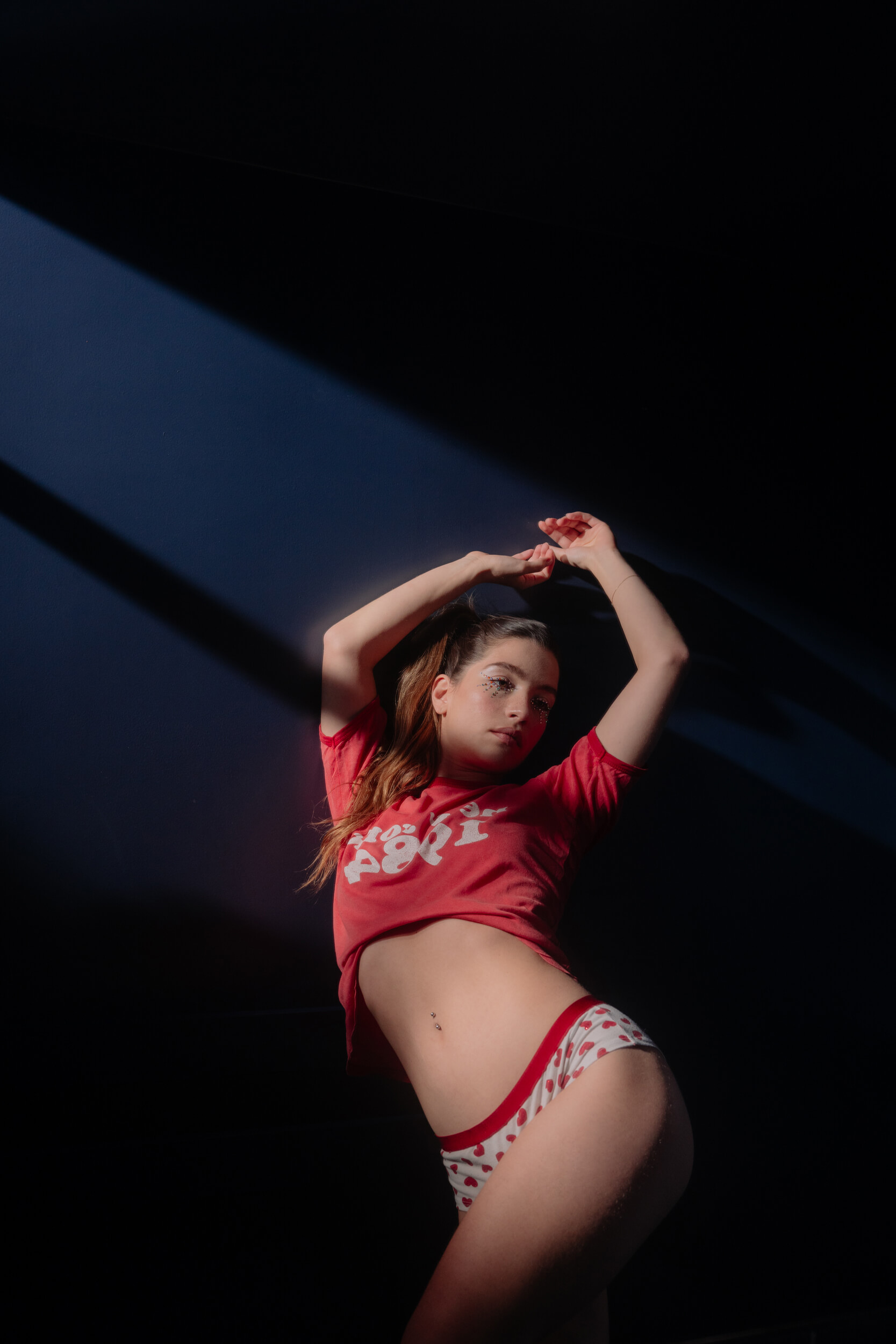
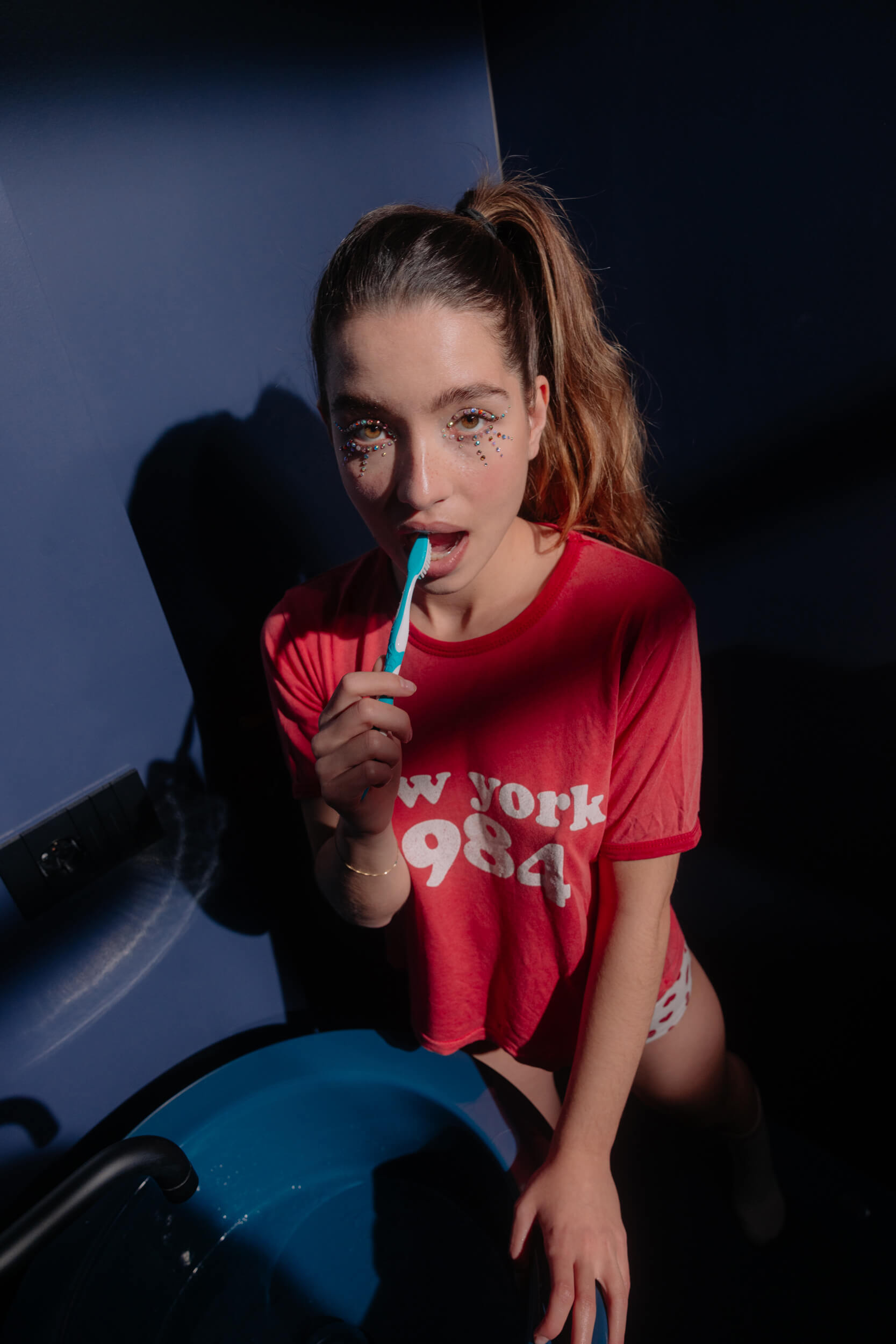
Did the series help you face or process this fear in any way?
Not really. Instead, it helped me name my emotions and understand them better. However, I don’t think certain things change, nor do they necessarily need to. If someone is born with a certain inclination or sensitivity, it’s important to preserve it. But knowing yourself better is always useful.
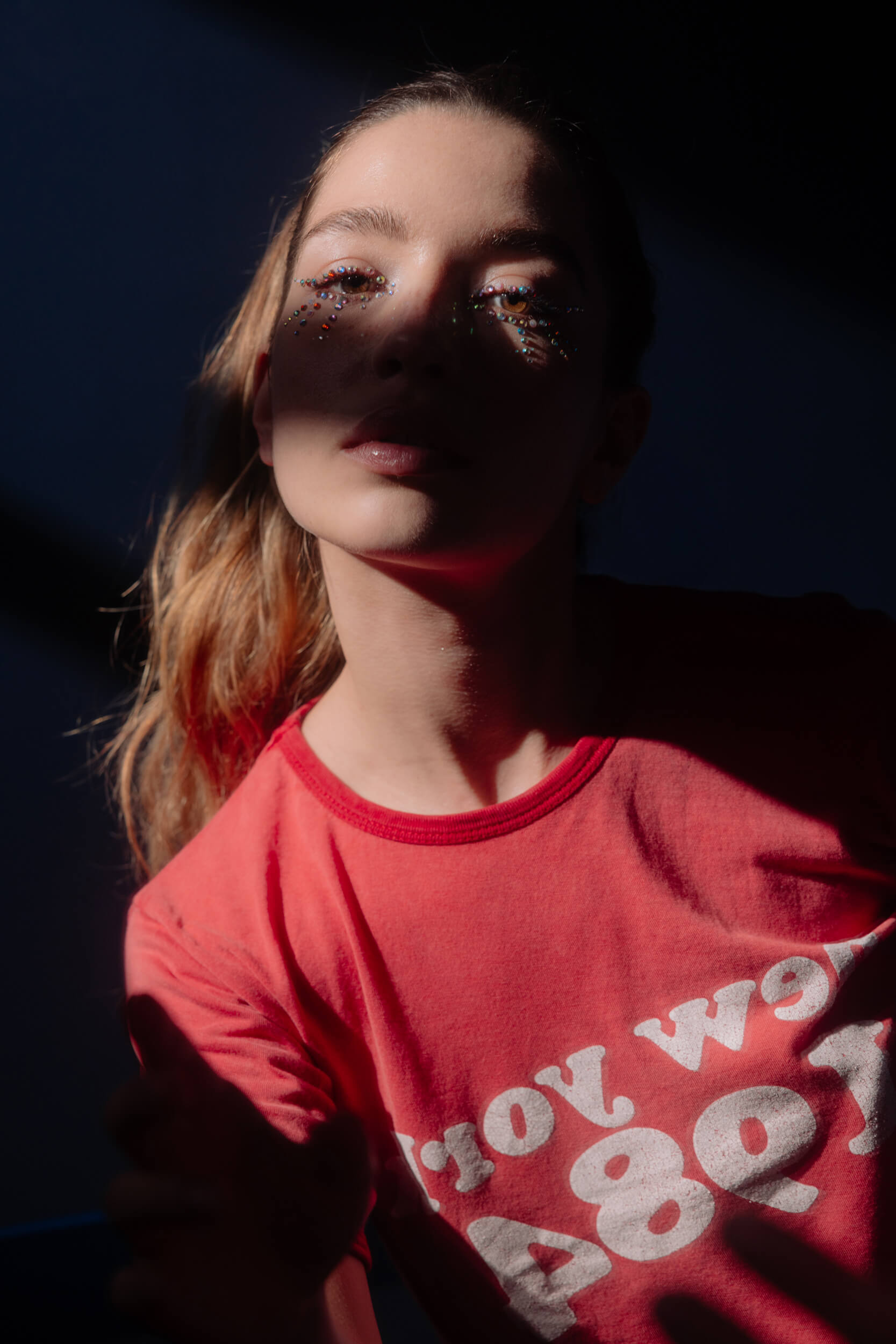
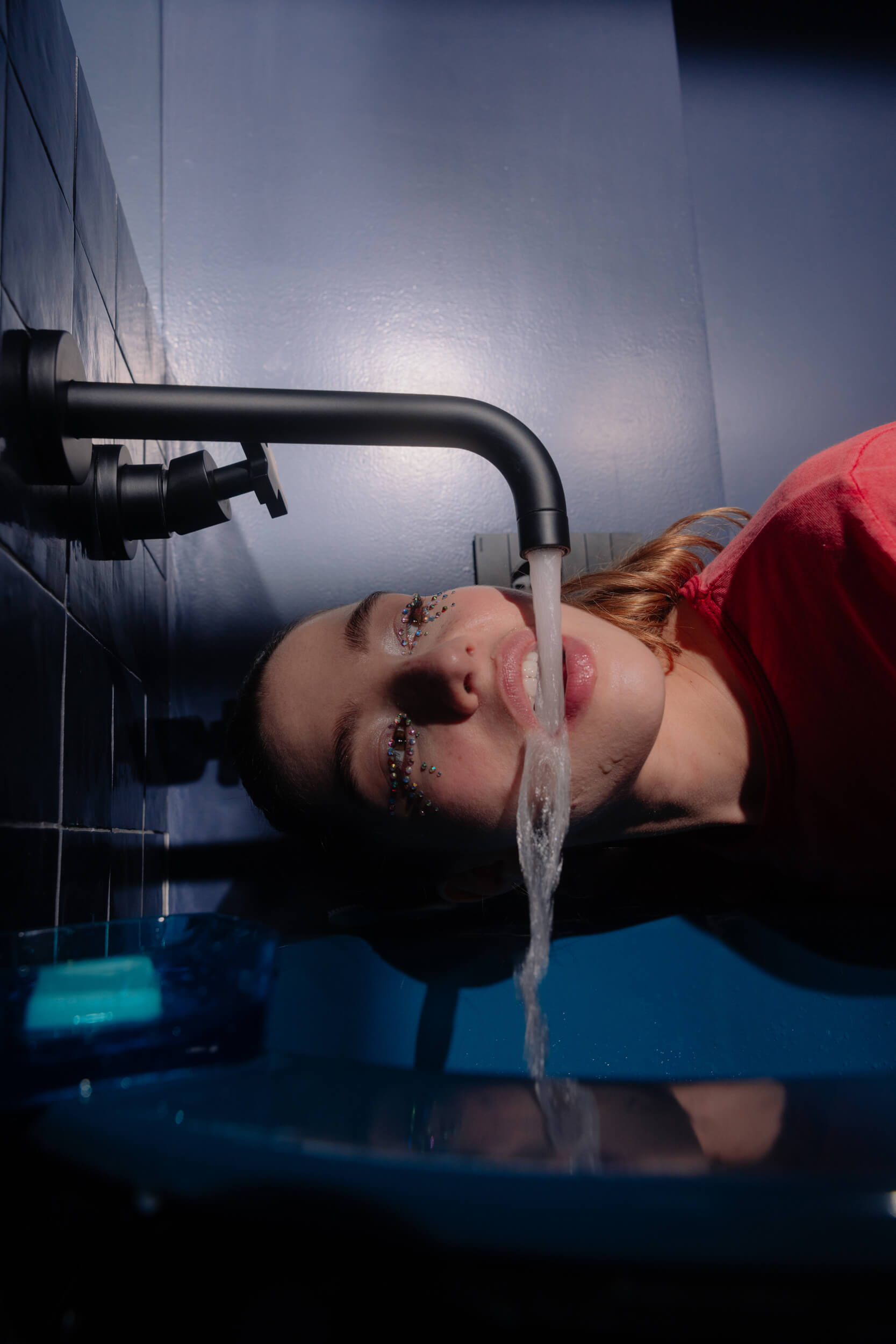
What do you think is the most important message the series conveys to young viewers?
I think the most beautiful outcome is how it’s sparked conversations about the topics addressed in the series, particularly femicide.
The most important thing I’d say is: speak up when you have doubts. Find someone to talk to, whether it’s a parent, friend, or sibling. It’s crucial not to overlook red flags. The events in “Adorazione” clearly have a culprit, but the blame also extends to an entire community that failed to “see.”
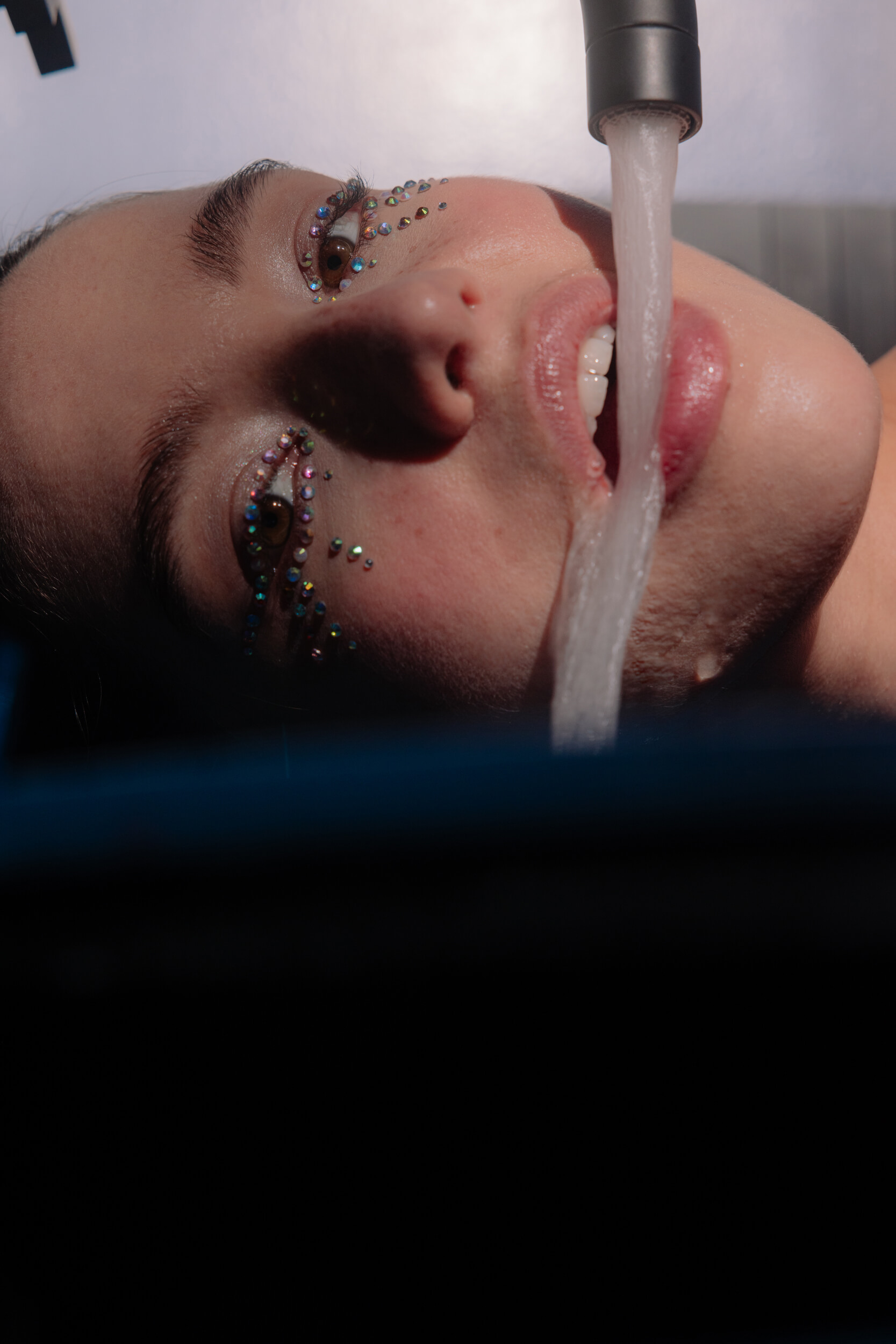
“speak up when you have doubts”
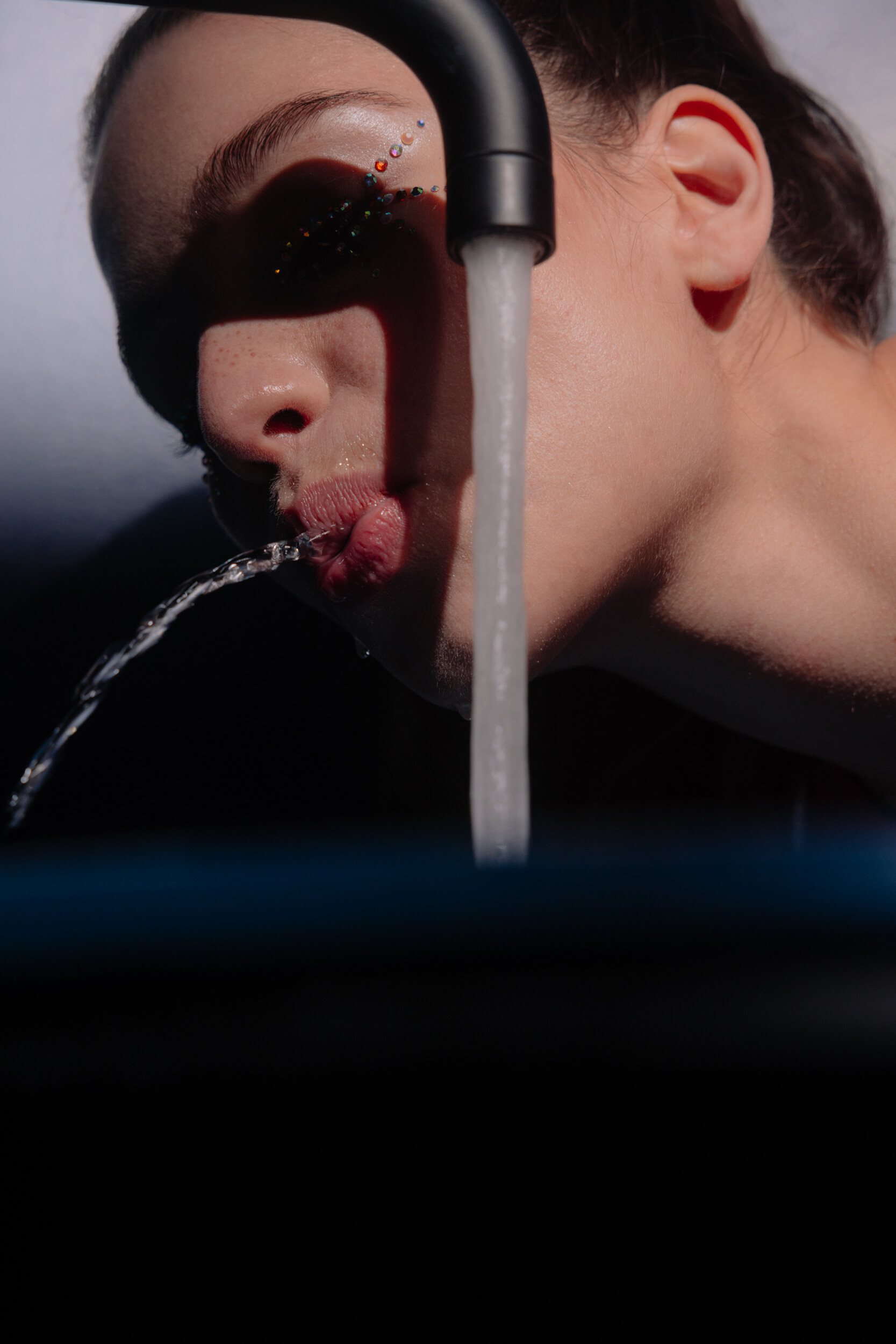
If you could choose another character in “Adorazione” to play, who would it be and why?
When I read the script, knowing I’d be playing Vera, I was thrilled. Honestly, I wouldn’t trade her for any other character. I think all the characters are incredible and unique in their own way, so it would’ve been amazing to play any of them.
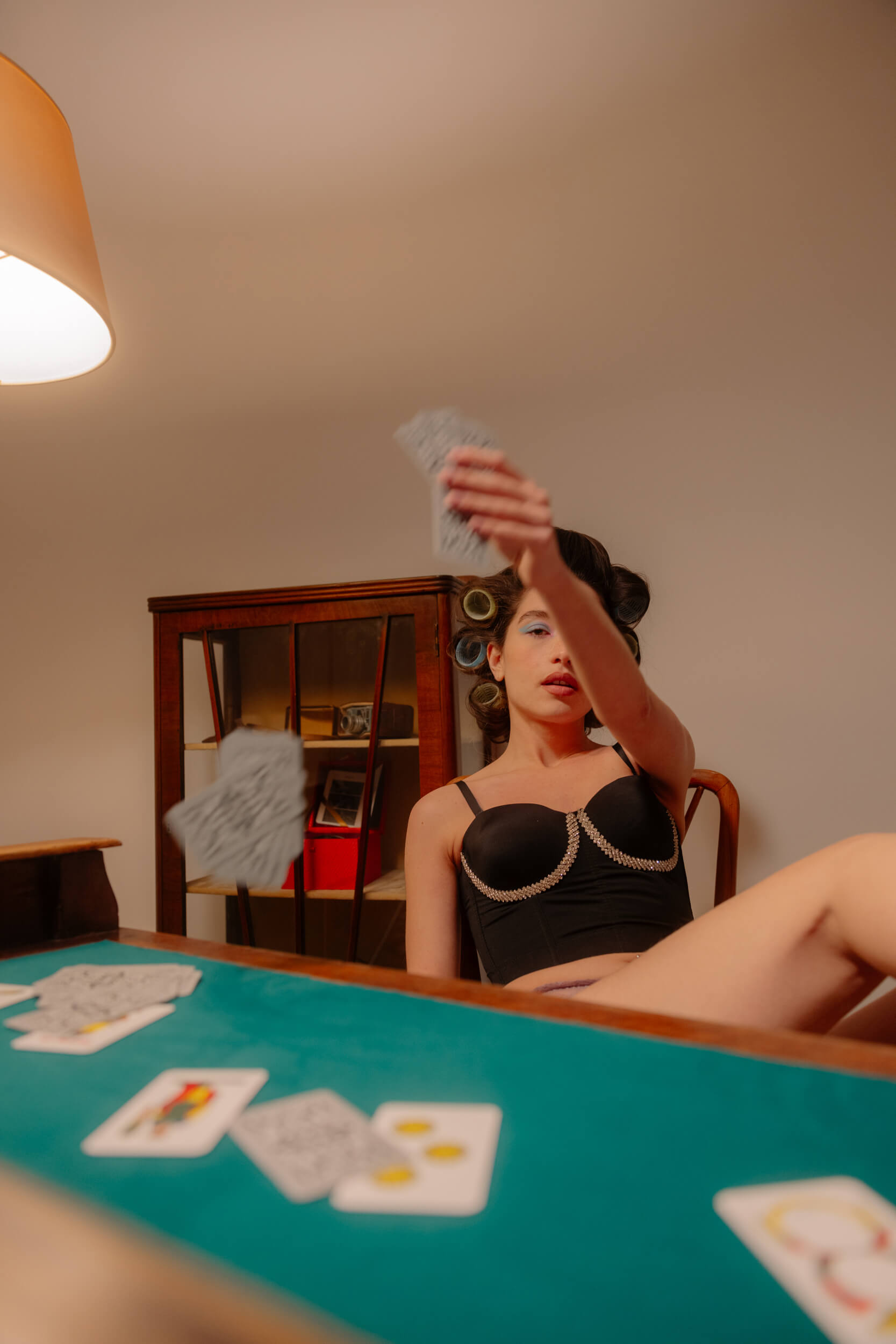
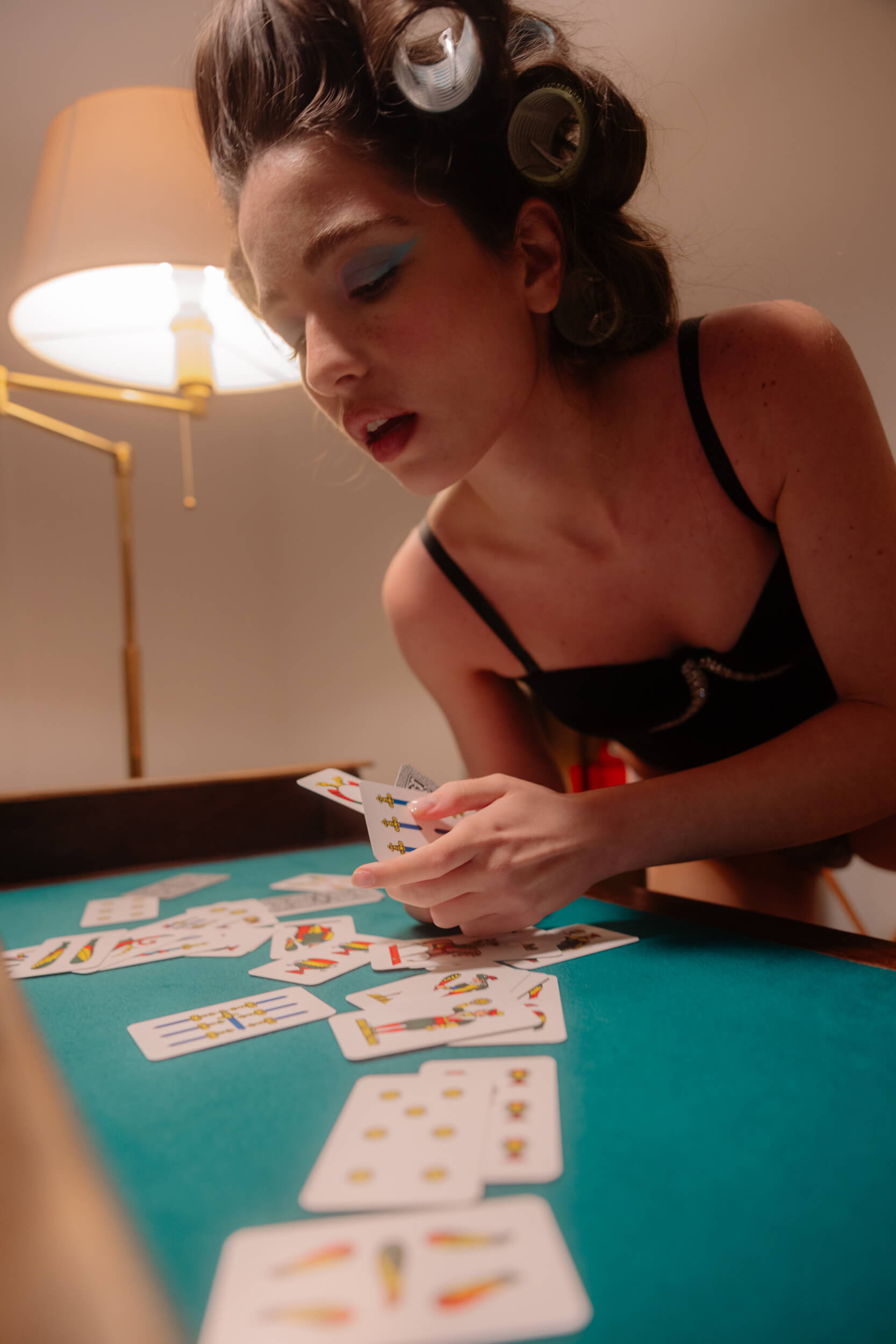
The soundtrack, supervised by Fabri Fibra, plays an important role in enriching the story. What’s your favorite song from the series?
One of my favorite songs, even before the series came out, is “Quanto forte ti pensavo” by Madame. Seeing it featured in the series when I previewed the first two episodes was mind-blowing. It felt like an incredible coincidence, a sign of fate.
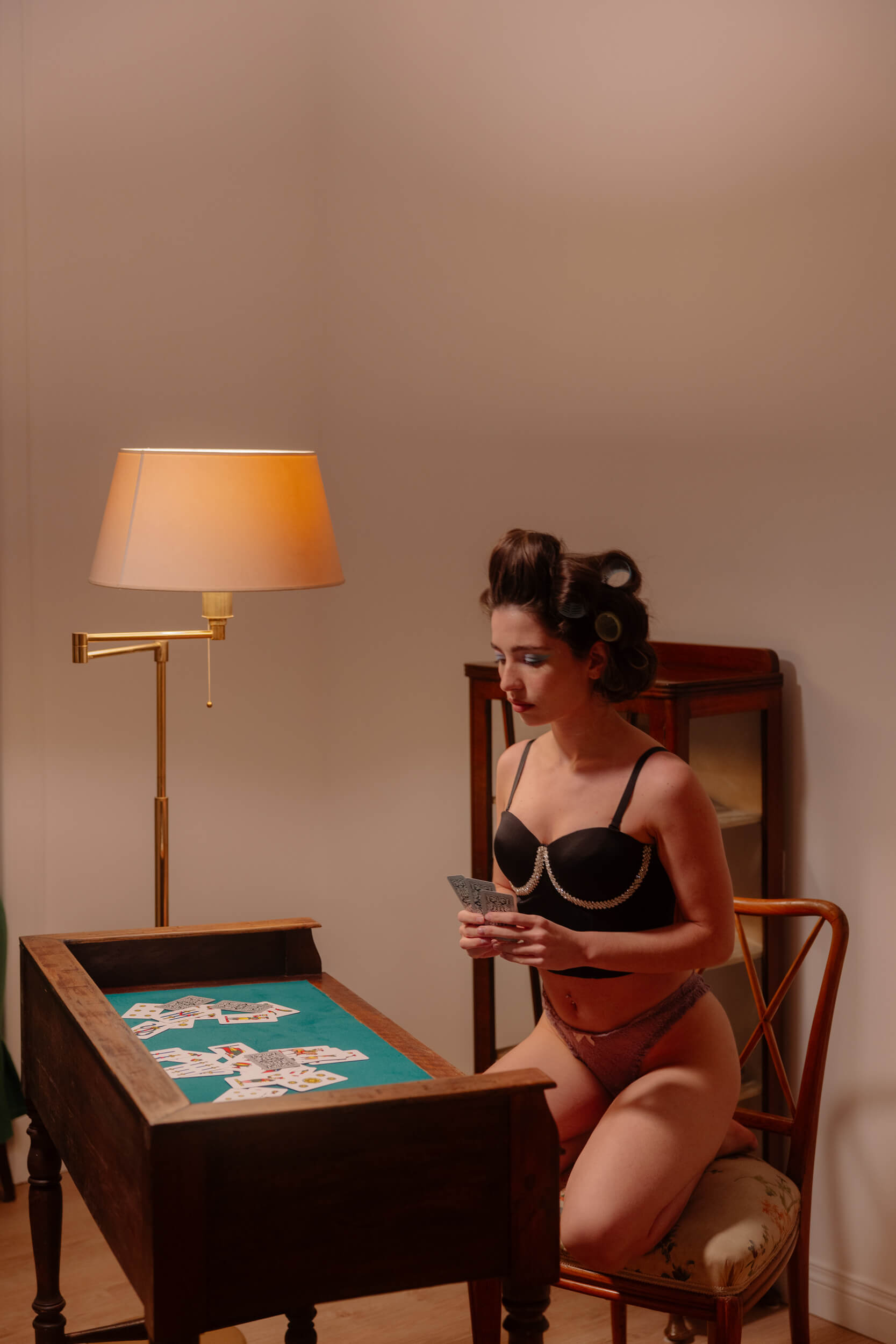
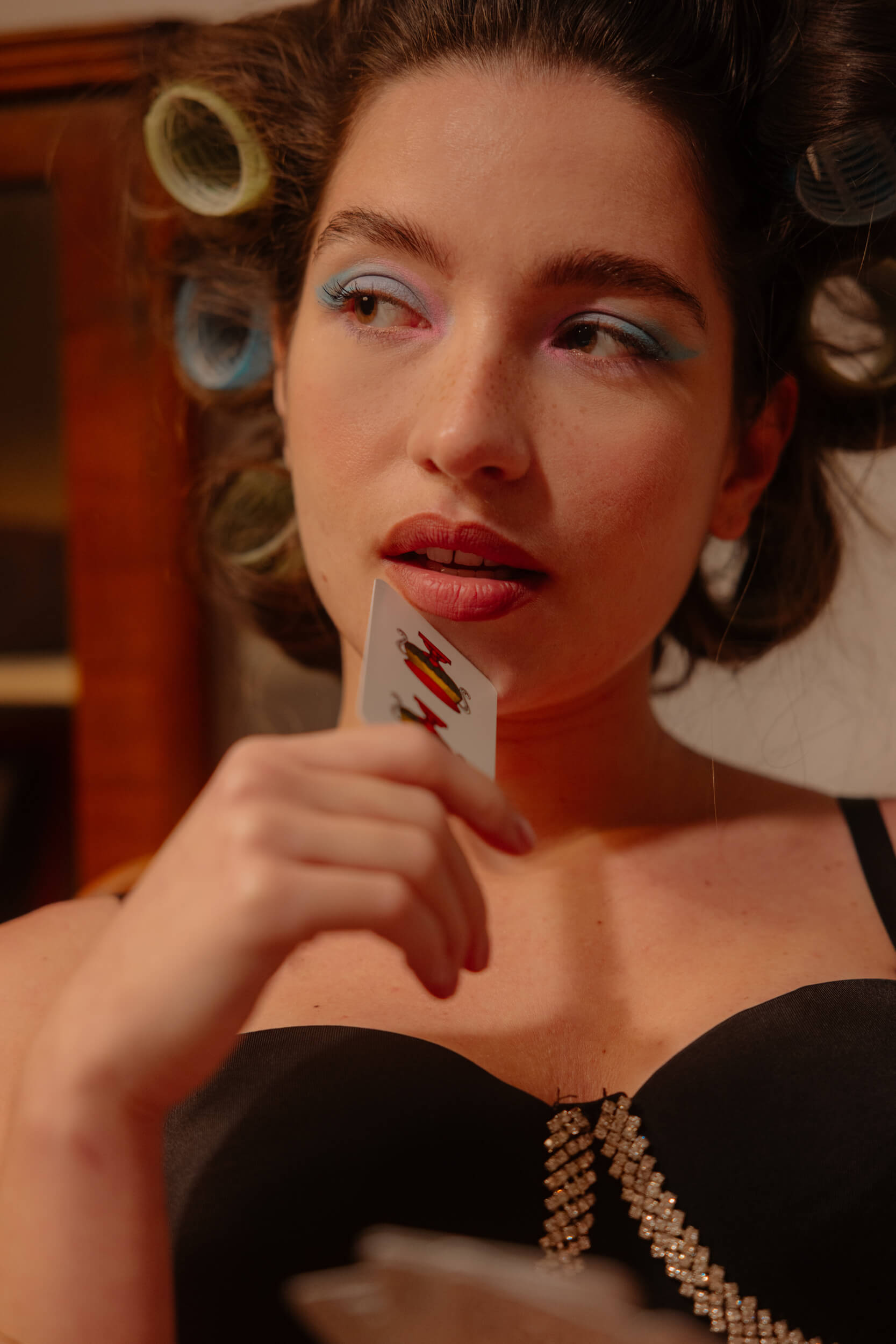
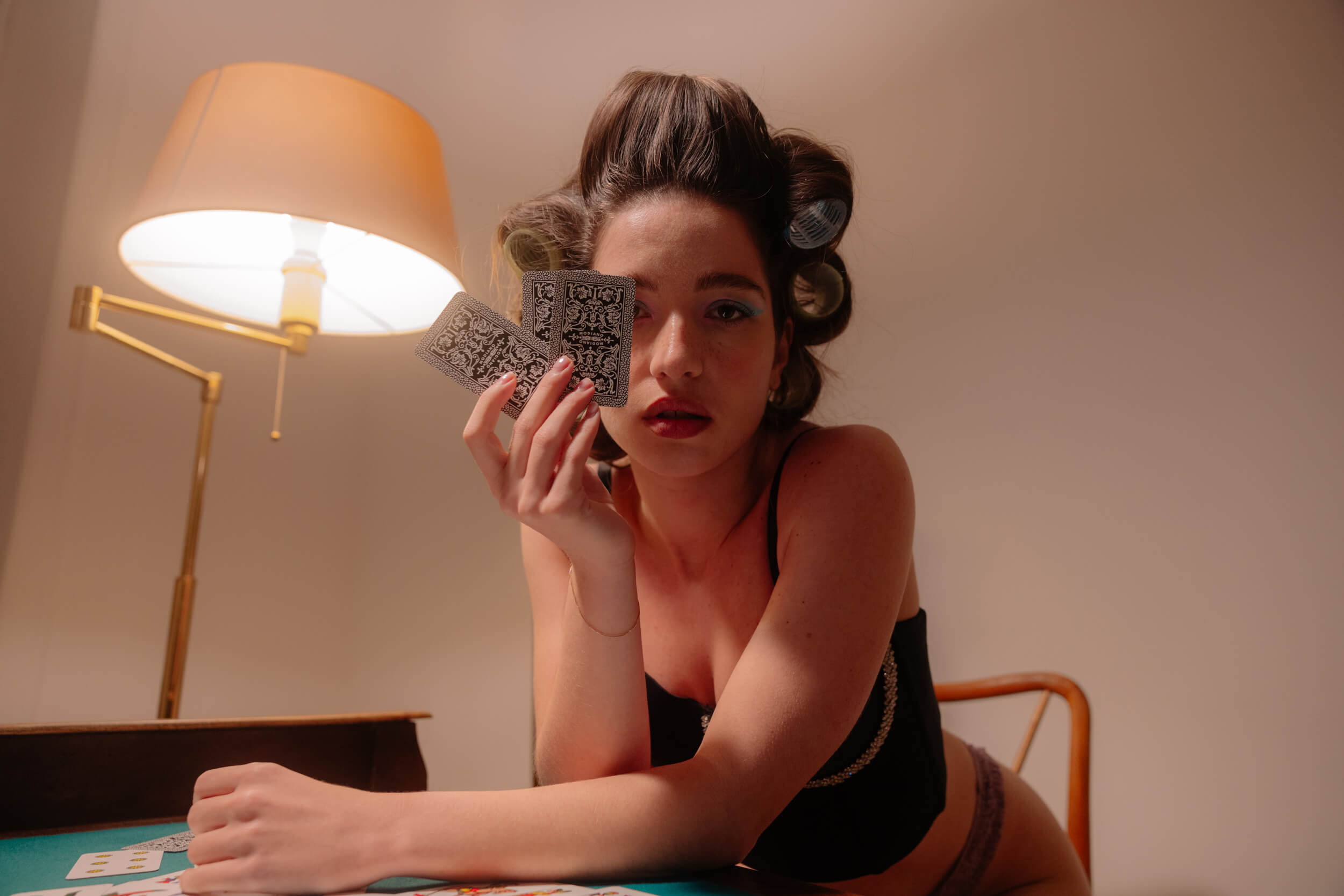
What’s your greatest act of courage?
Looking forward and stopping myself from living in the past.
And your greatest act of rebellion?
Becoming an actress [laughs].
What’s your biggest fear?
Going back to what we mentioned earlier, it’s being alone—being abandoned.
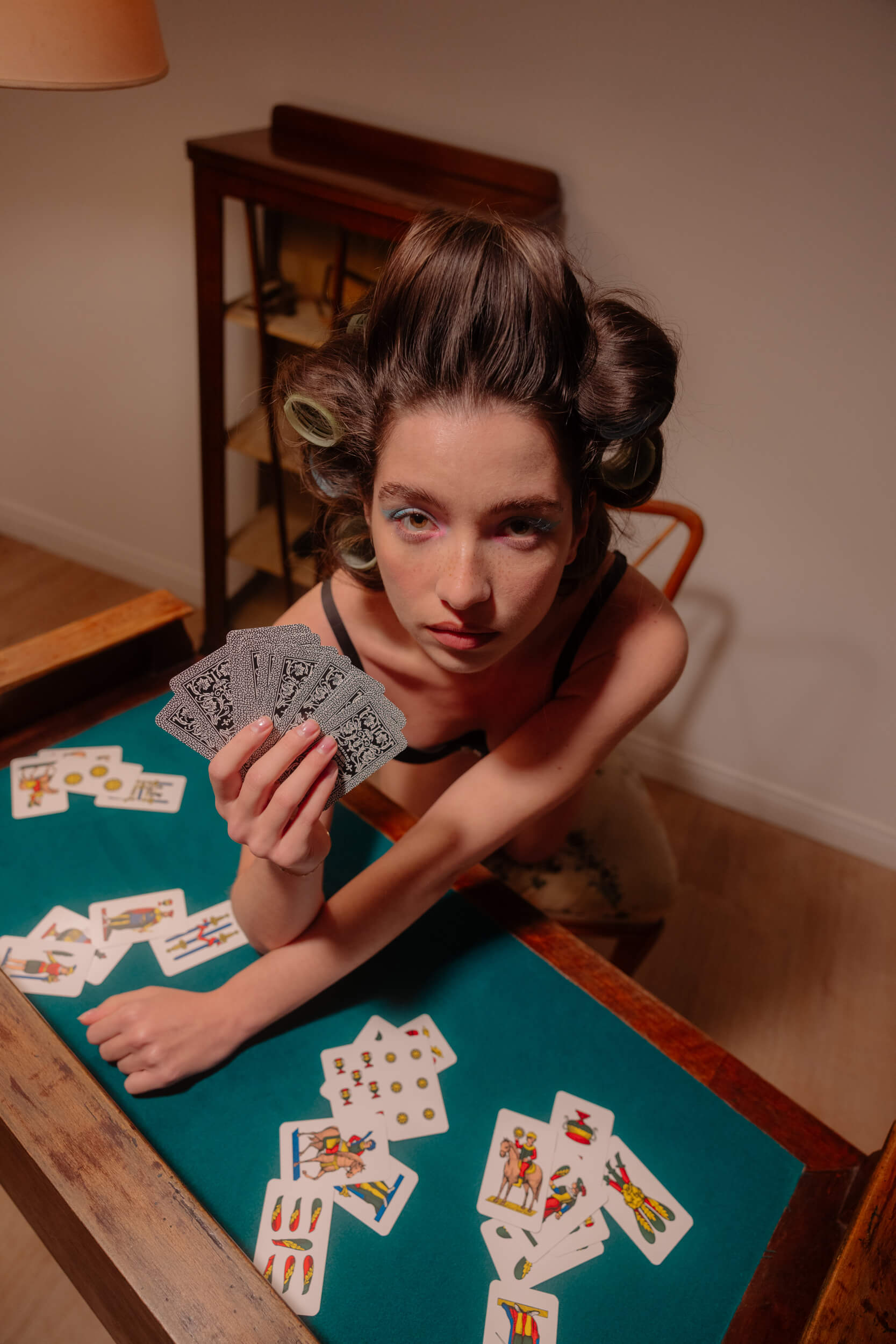
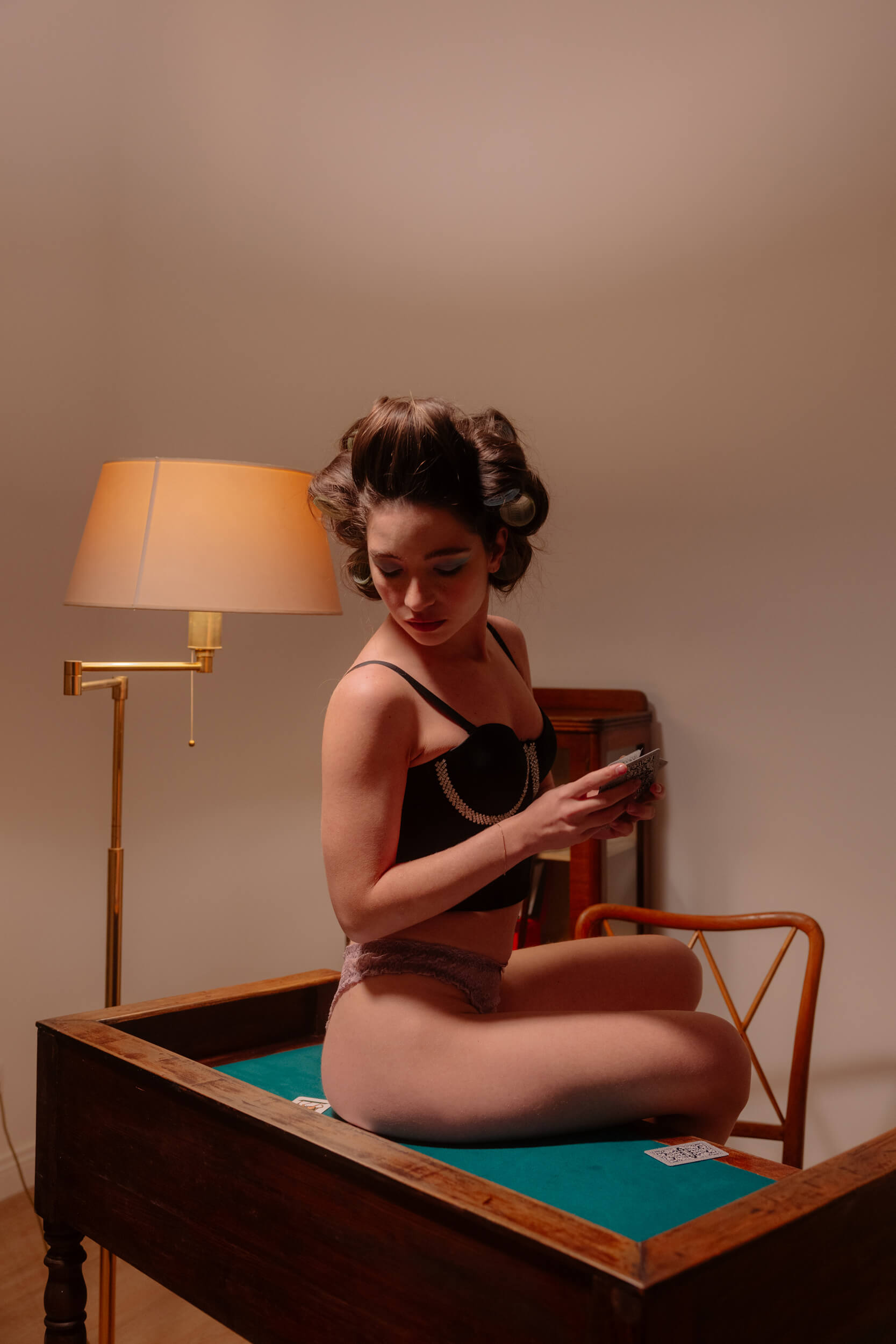
What does feeling comfortable in your own skin mean to you?
It’s something I’ve often reflected on. I think we’re all very influenced by social norms and ideas about how we “should” behave or be, as if there’s a right and wrong way.
If acting has given me one wonderful gift, it’s teaching me that there’s no right or wrong. Of course, there are ethical and moral boundaries, but when it comes to how we appear in social contexts, there’s no right or wrong—only how we feel. The best is when we don’t lose ourselves only to please somebody else.
To feel comfortable in my own skin means to feel free. If I want to dance even when surrounded by strangers, I’ll dance anyway because I owe no one an explanation. Acting has given me tools to fight this judgmental attitude, because when you act, the more vulnerable you are, the more value you bring to your work.
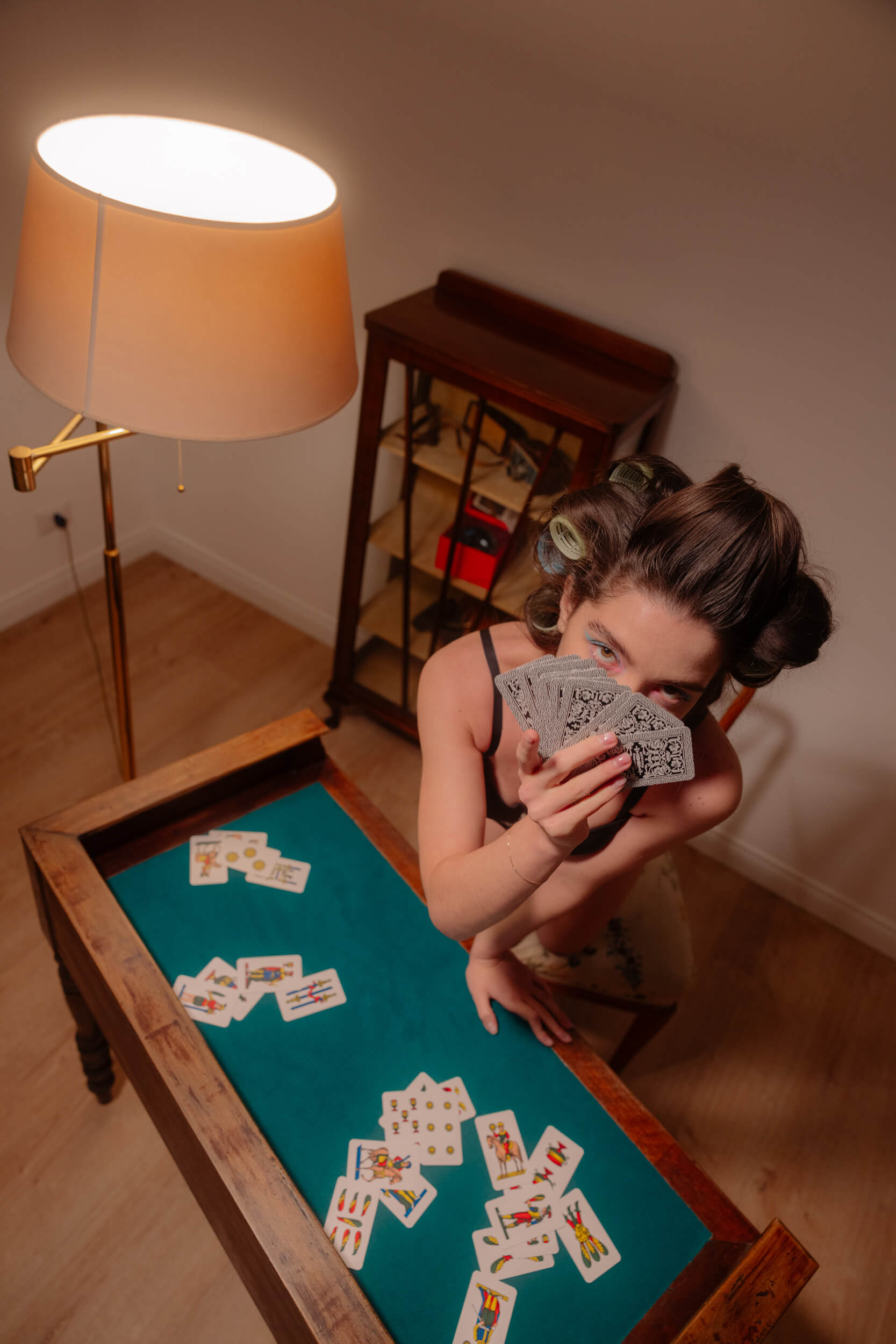
“The best is when we don’t lose ourselves only to please somebody else.”
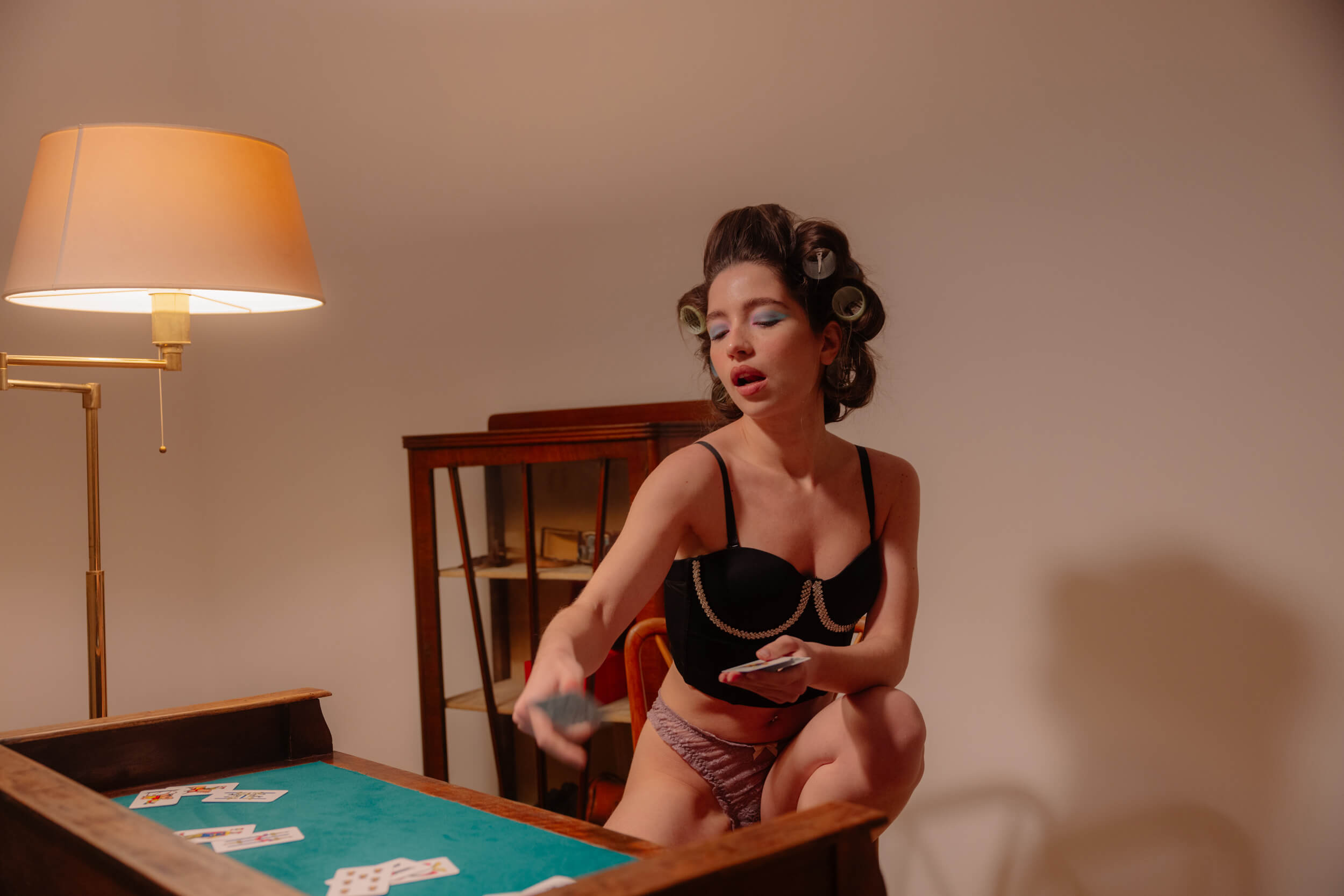
What’s the latest thing you’ve discovered about yourself through acting?
Through Vera, I discovered that, even though I’ve always thought of myself as sensitive and fragile, I actually have a very strong armor.
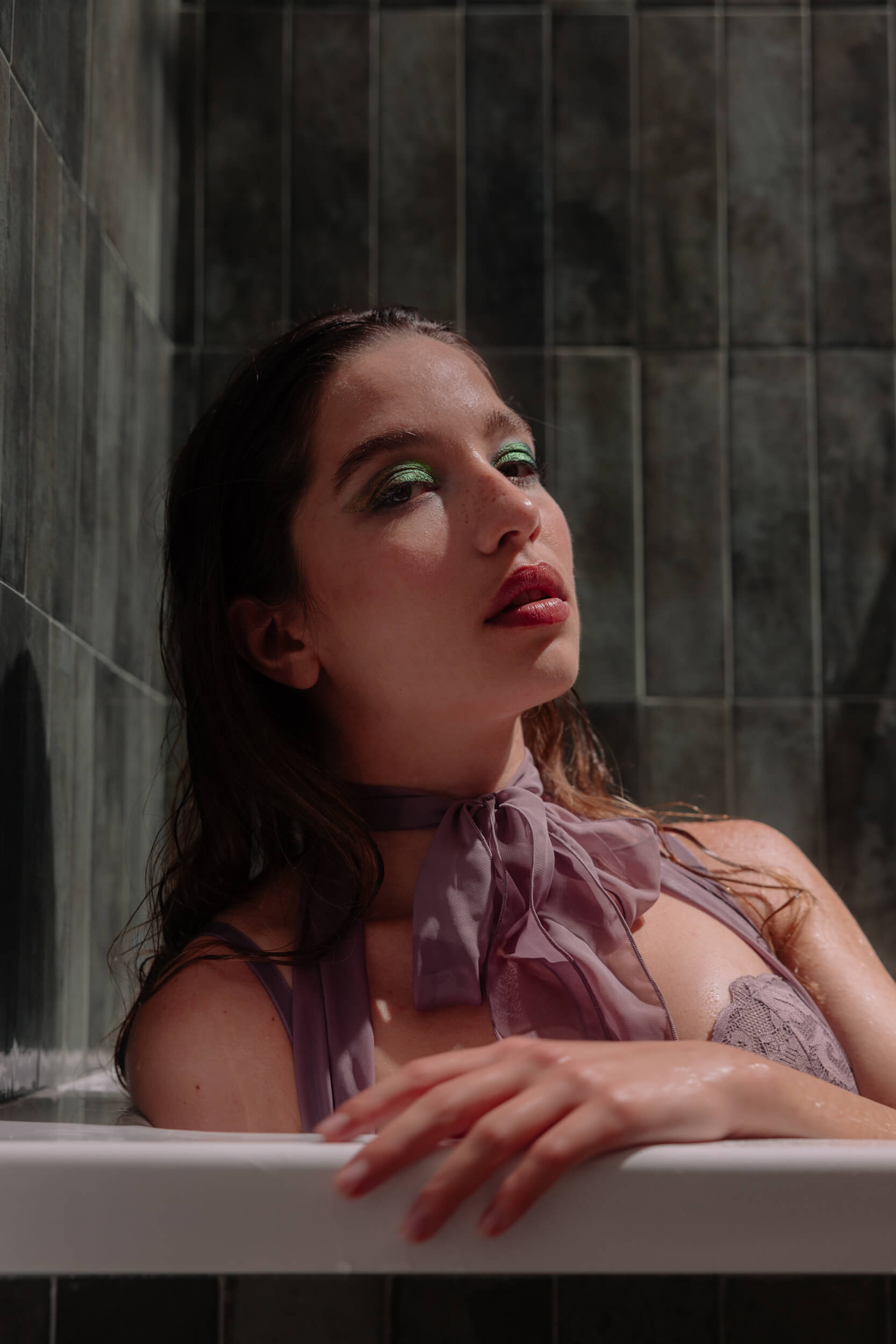
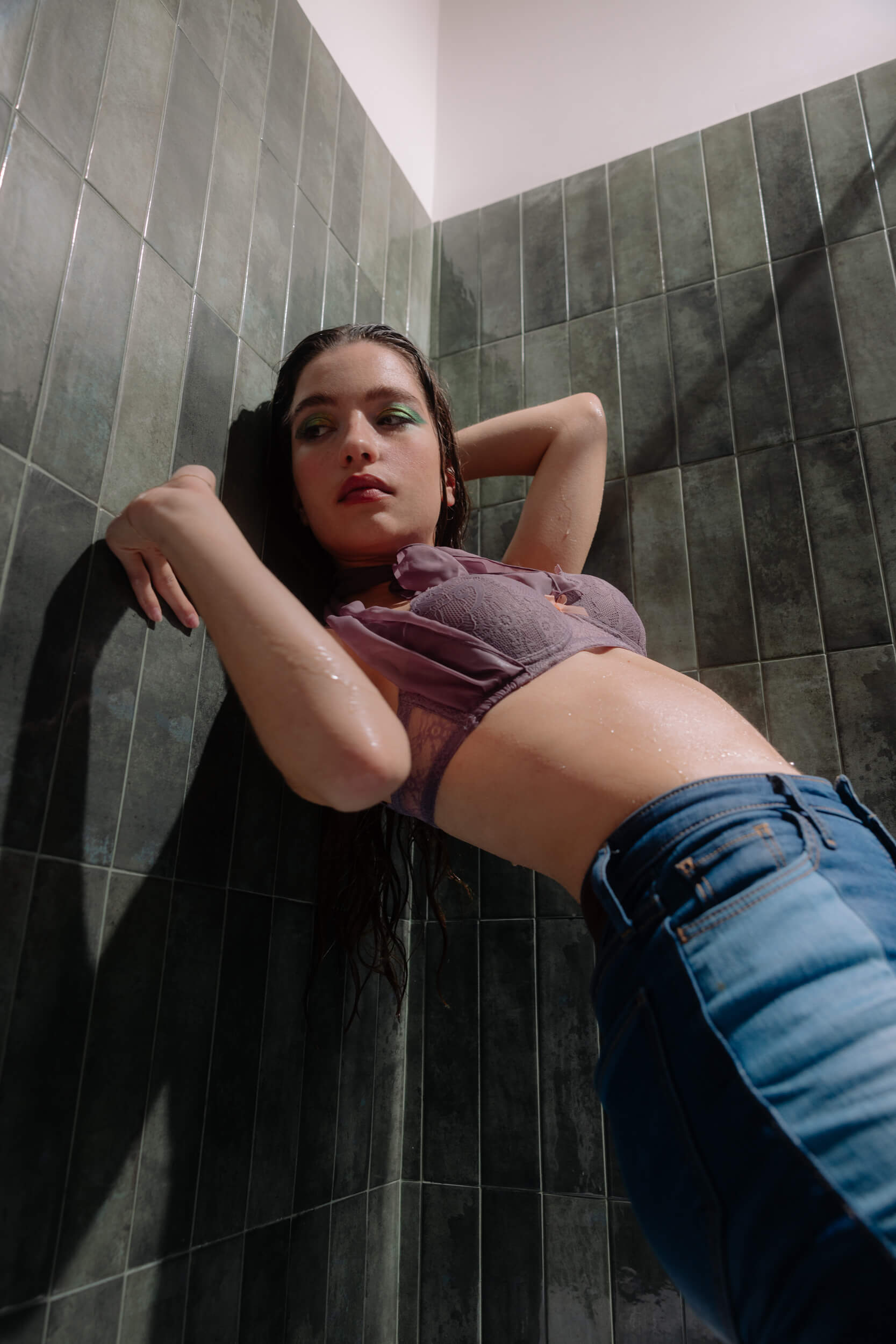
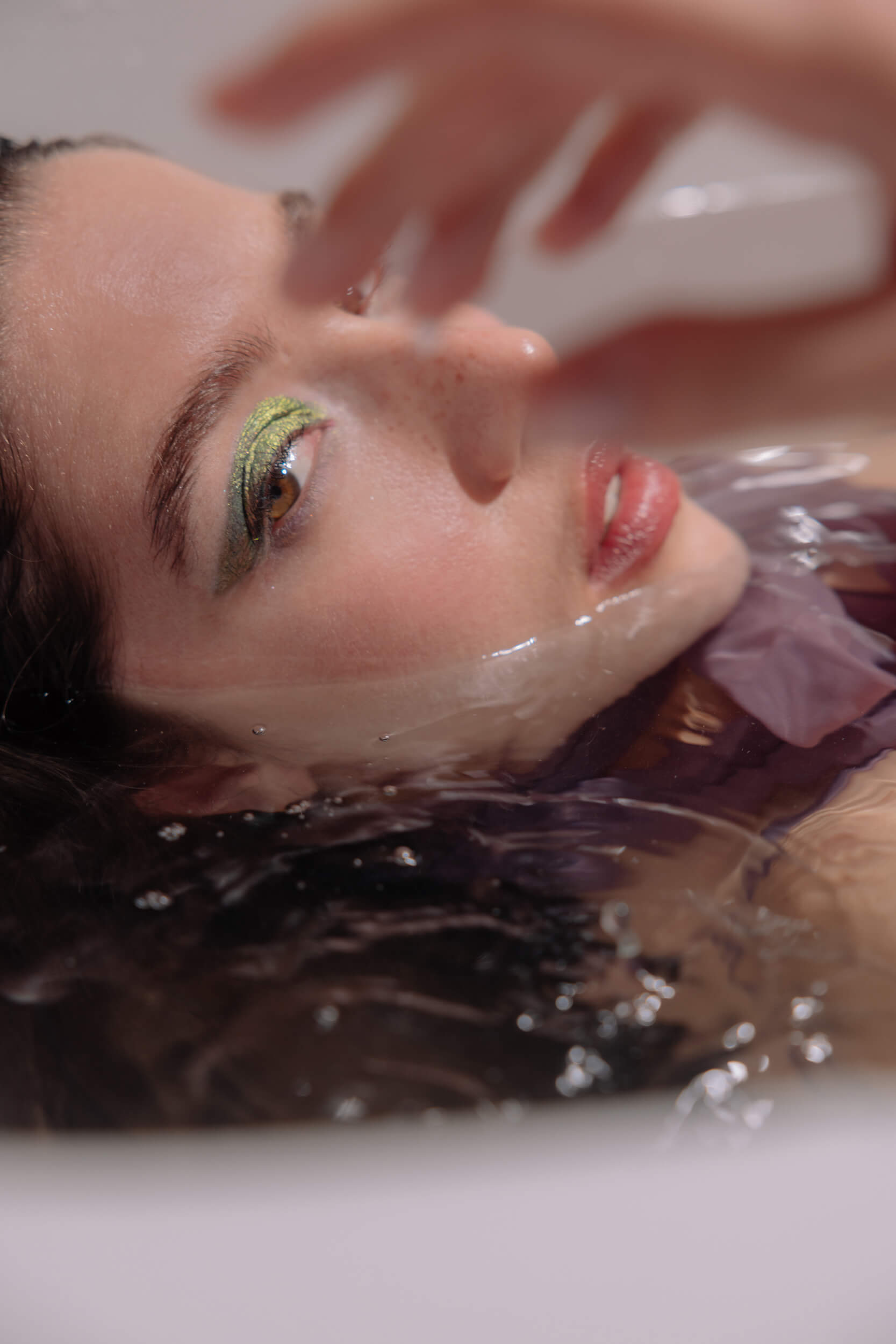
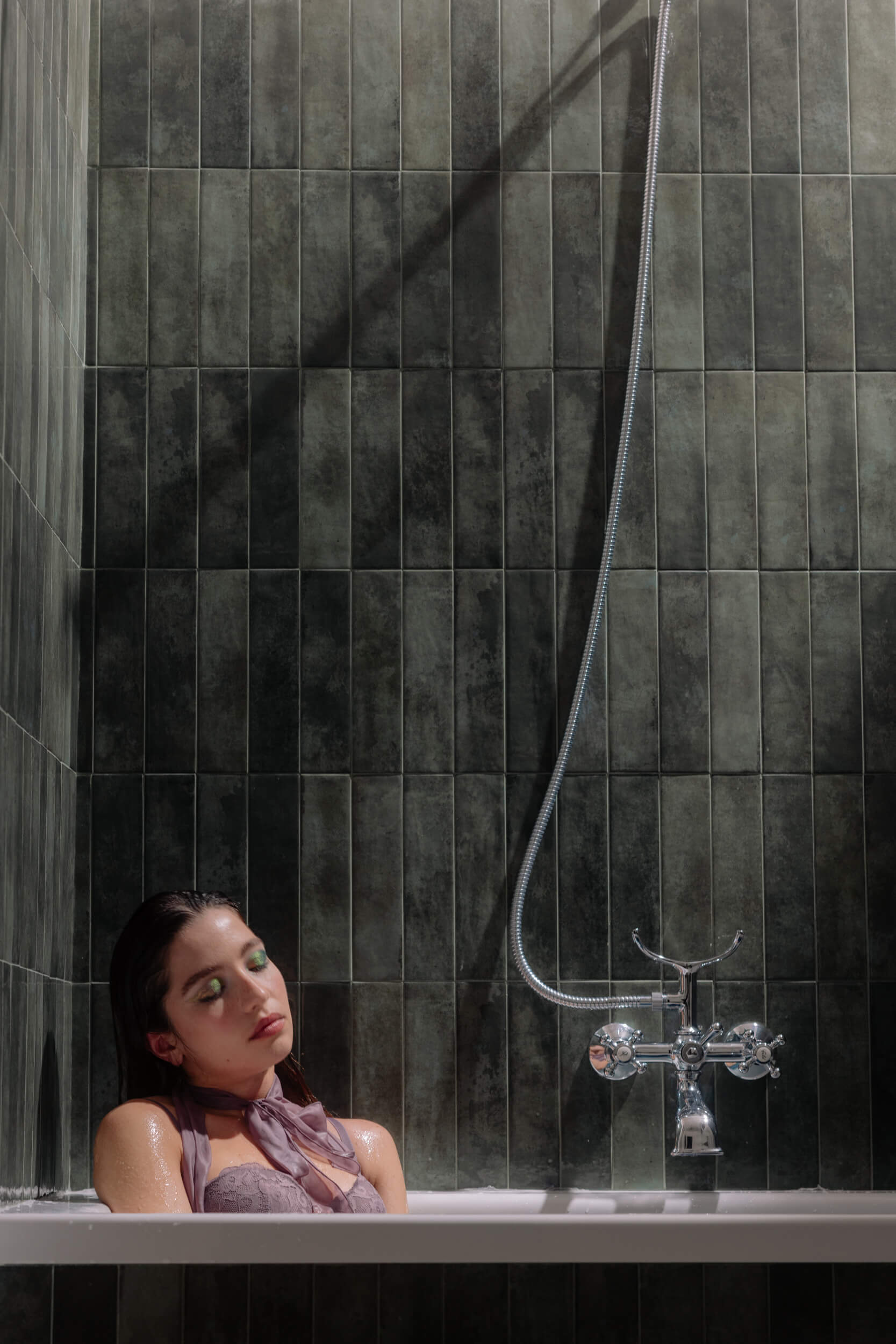
Are you an early bird or a night owl? And what’s your favorite time of day?
I’m definitely a night owl. I’d flip our sleep schedules if I could—I’d even start a referendum to make working hours at night and sleep during the day [laughs]. You know, there’s a scientific explanation behind it, in my opinion. Back in the day, people lived in villages, and someone had to stay awake to keep watch while the others slept. So, it made sense that not everyone had the same sleep-wake cycle. As a result, everyone is built differently. I would have been one of those who kept watch at night [laughs].
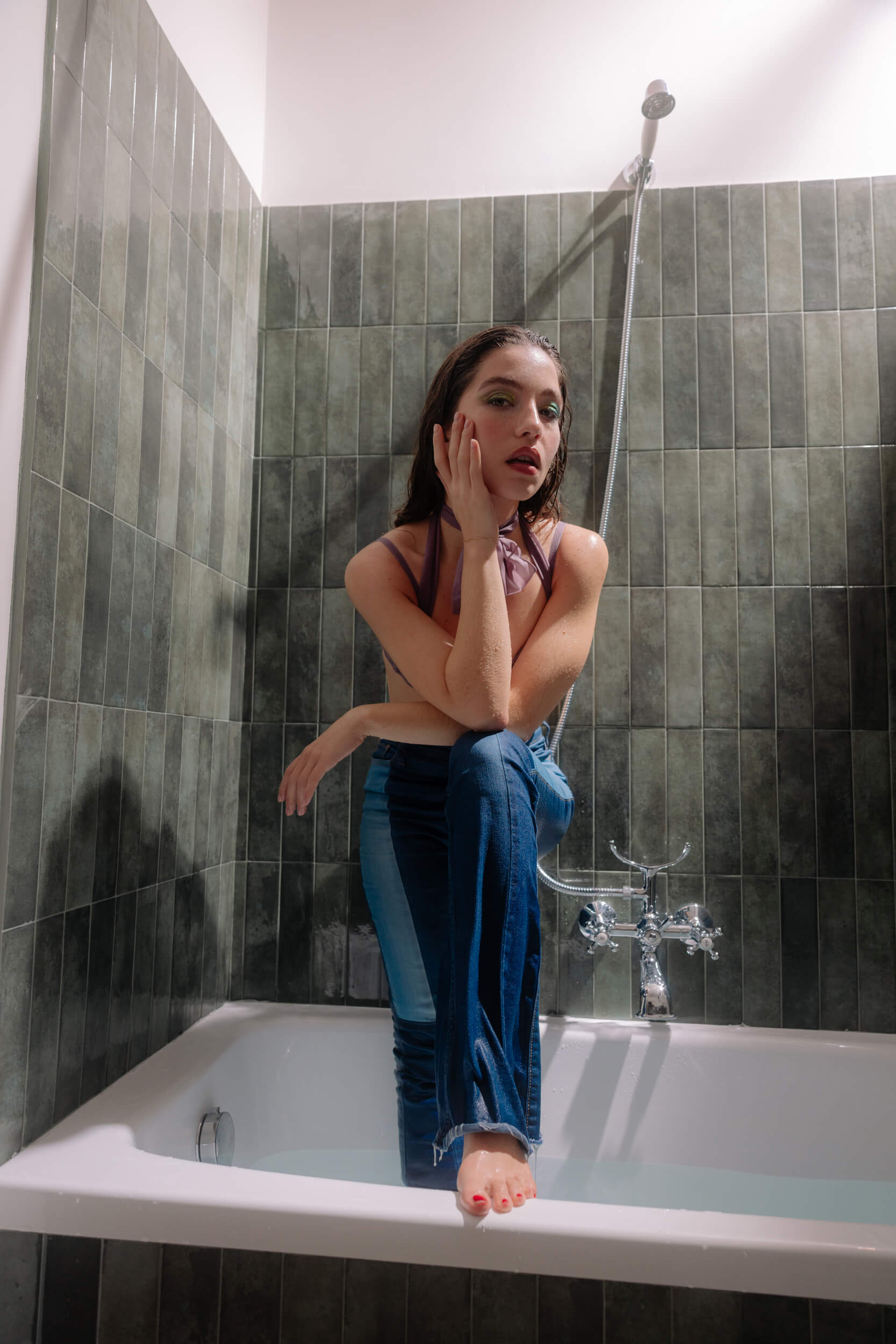
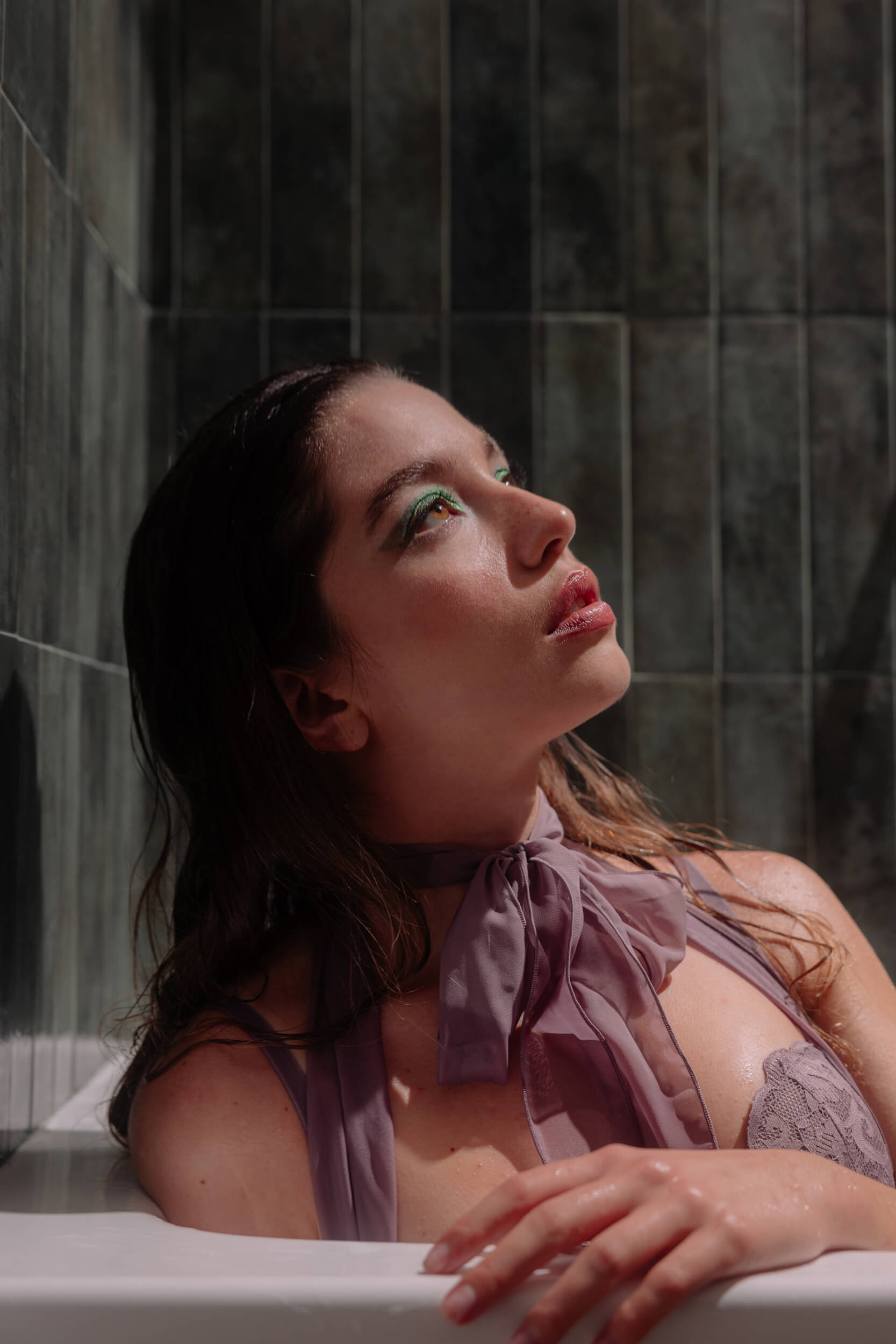
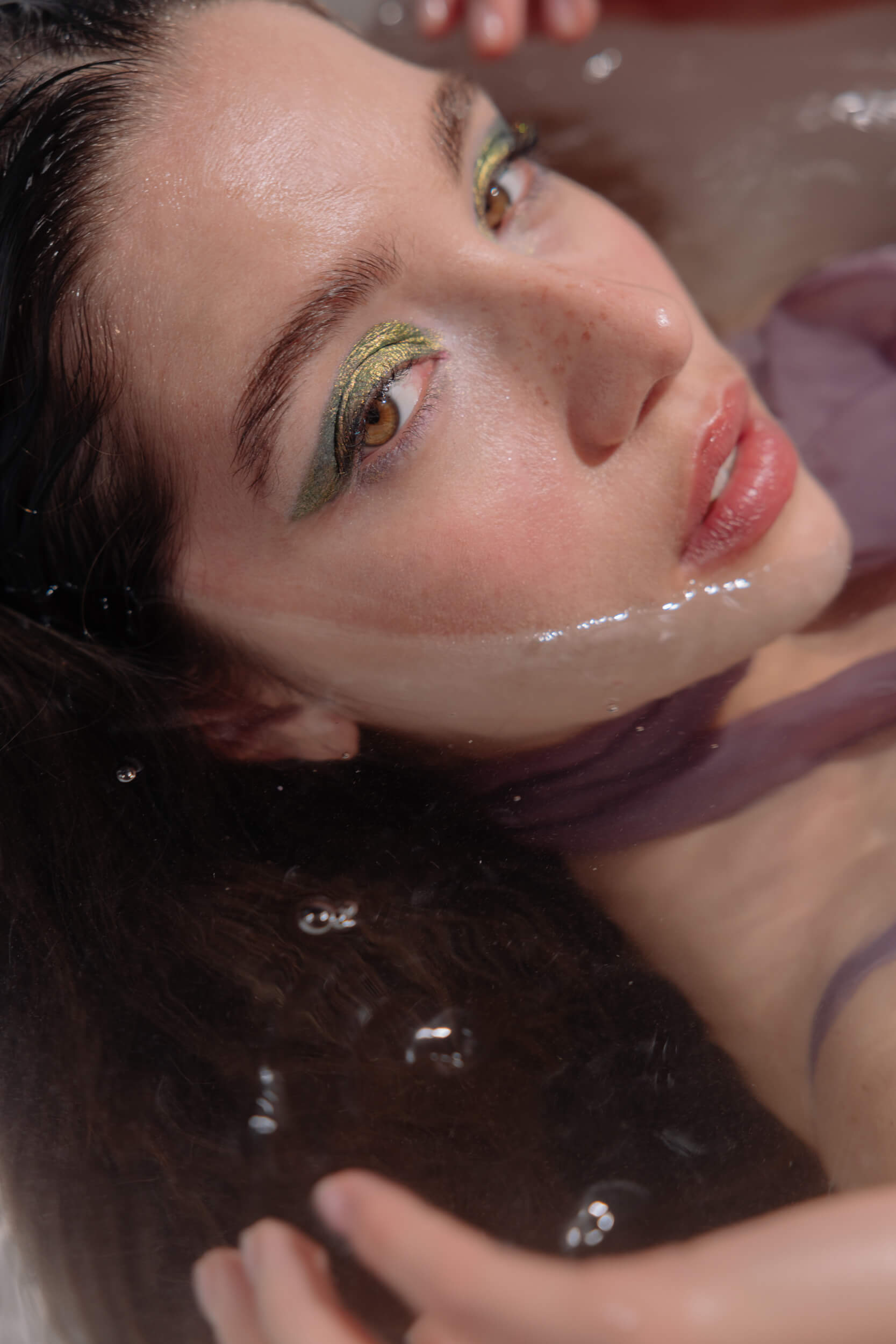
“I’m definitely a night owl“
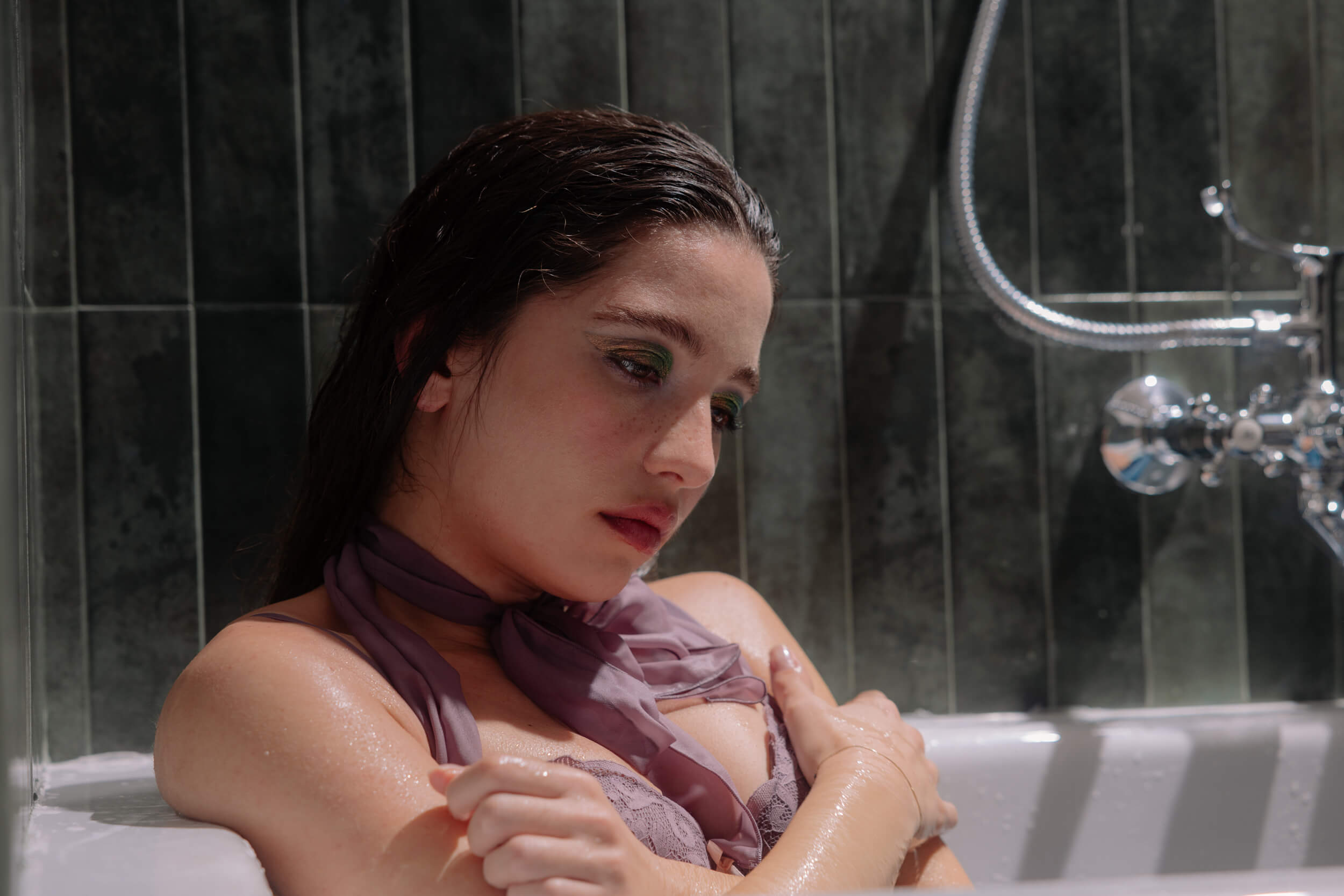
What’s your happy place?
My happy place is in my mother’s arms.
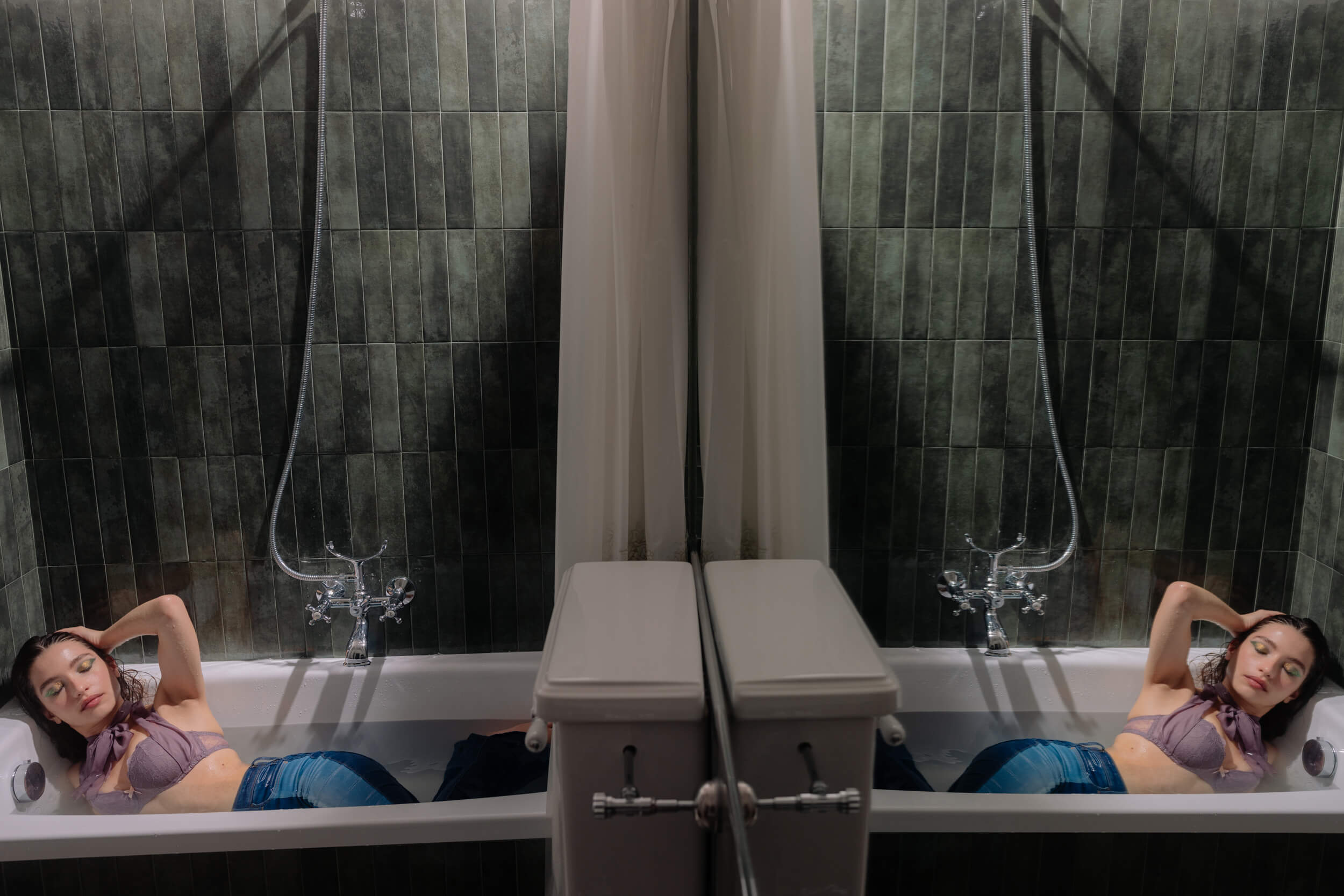
Photos & Video by Johnny Carrano.
Styling by Valentina Palumbo.
Makeup & Hair by Sofia Caspani.
Thanks to laPalumbo Comunicazione.

